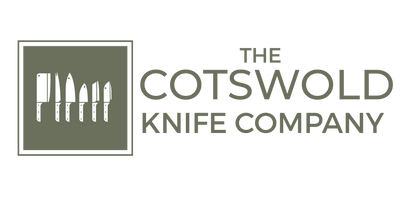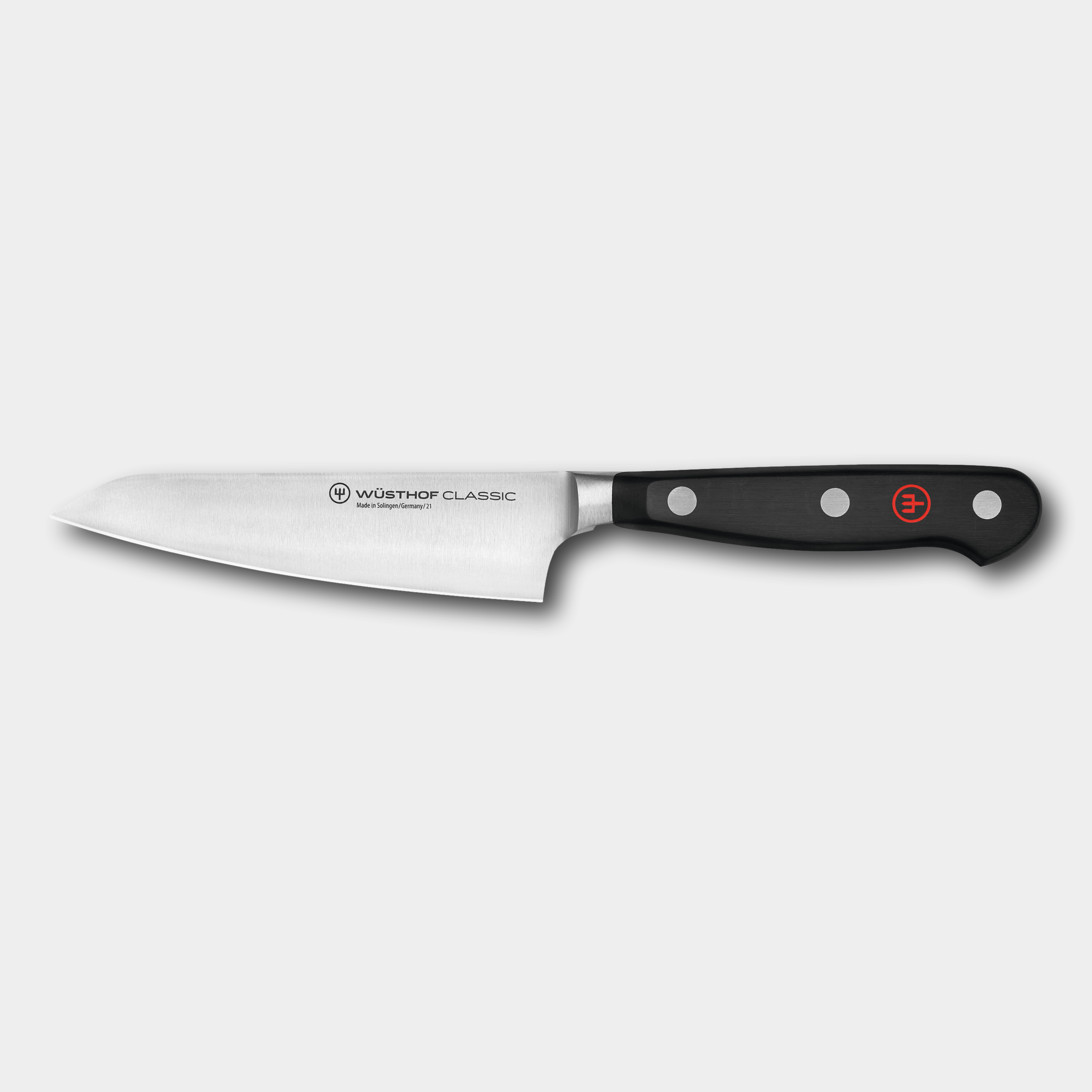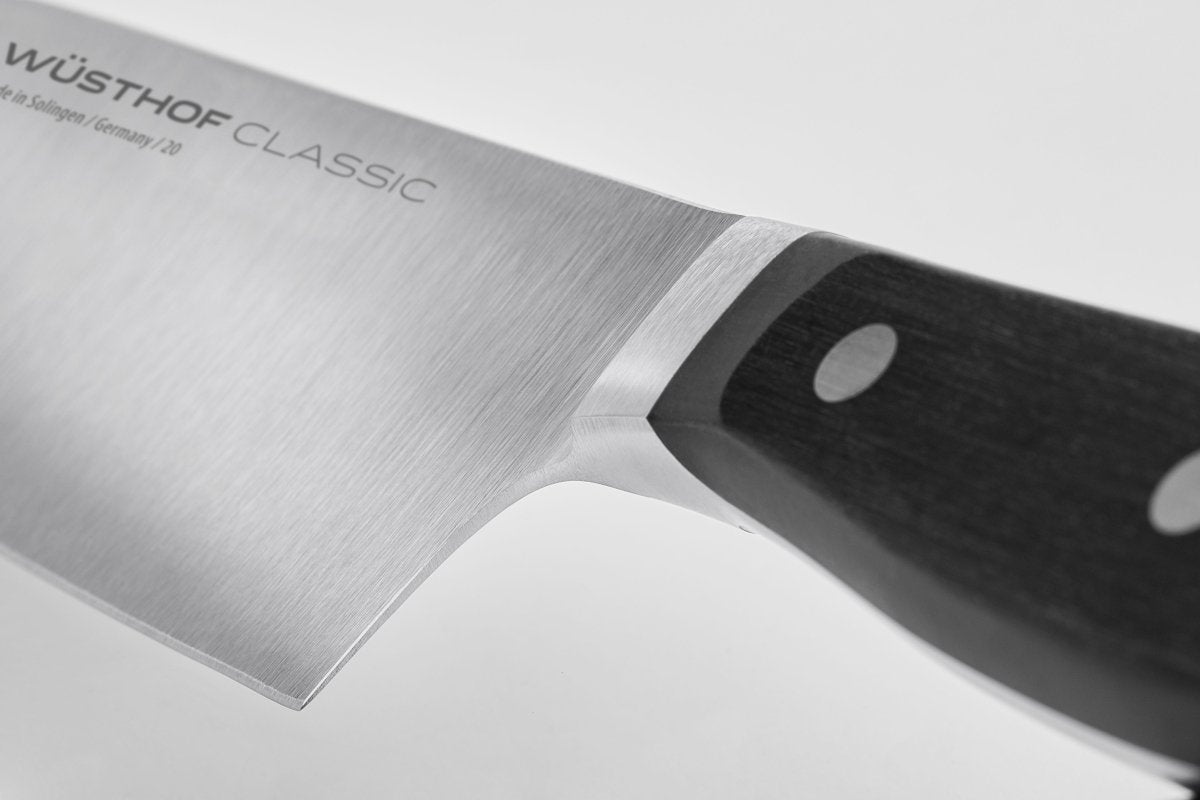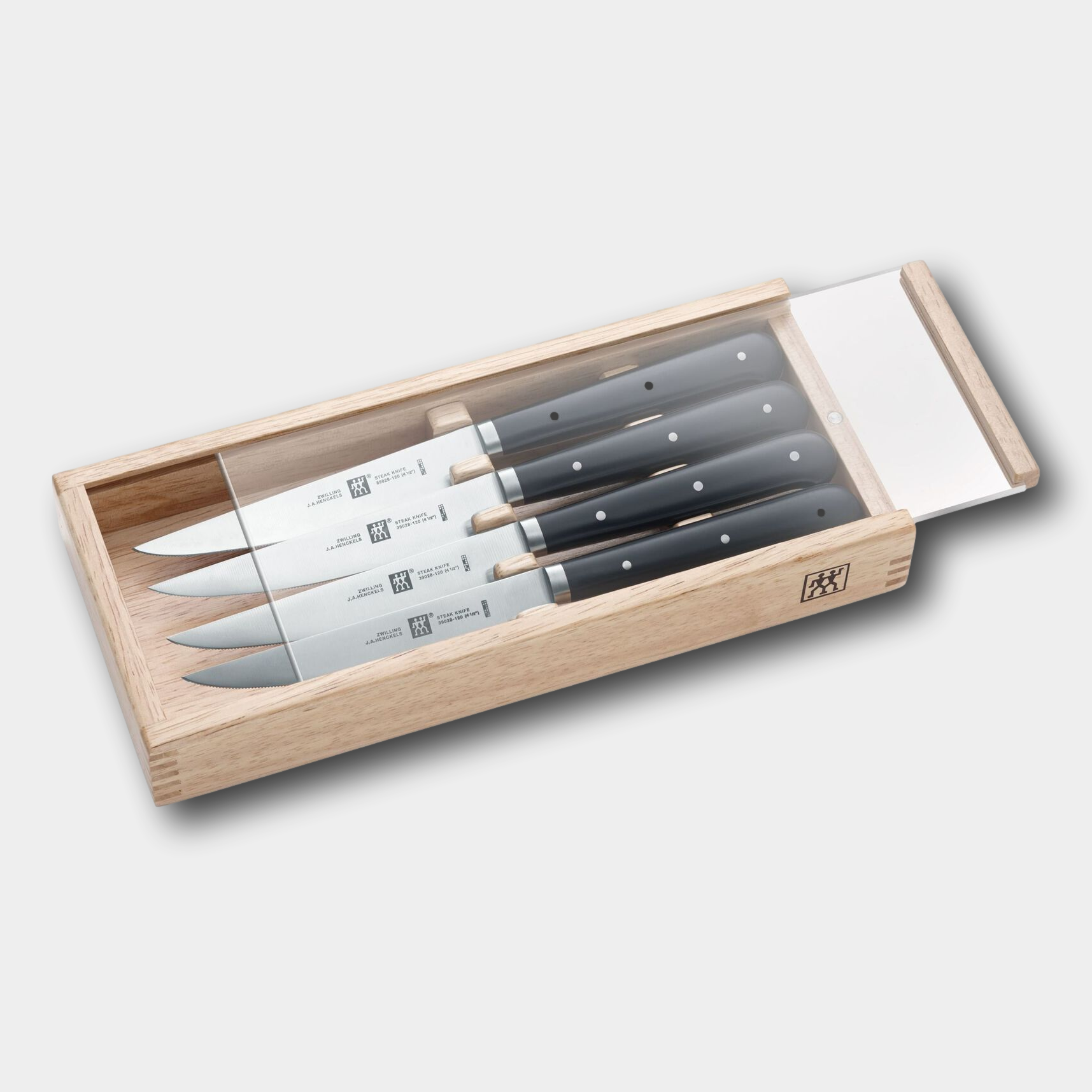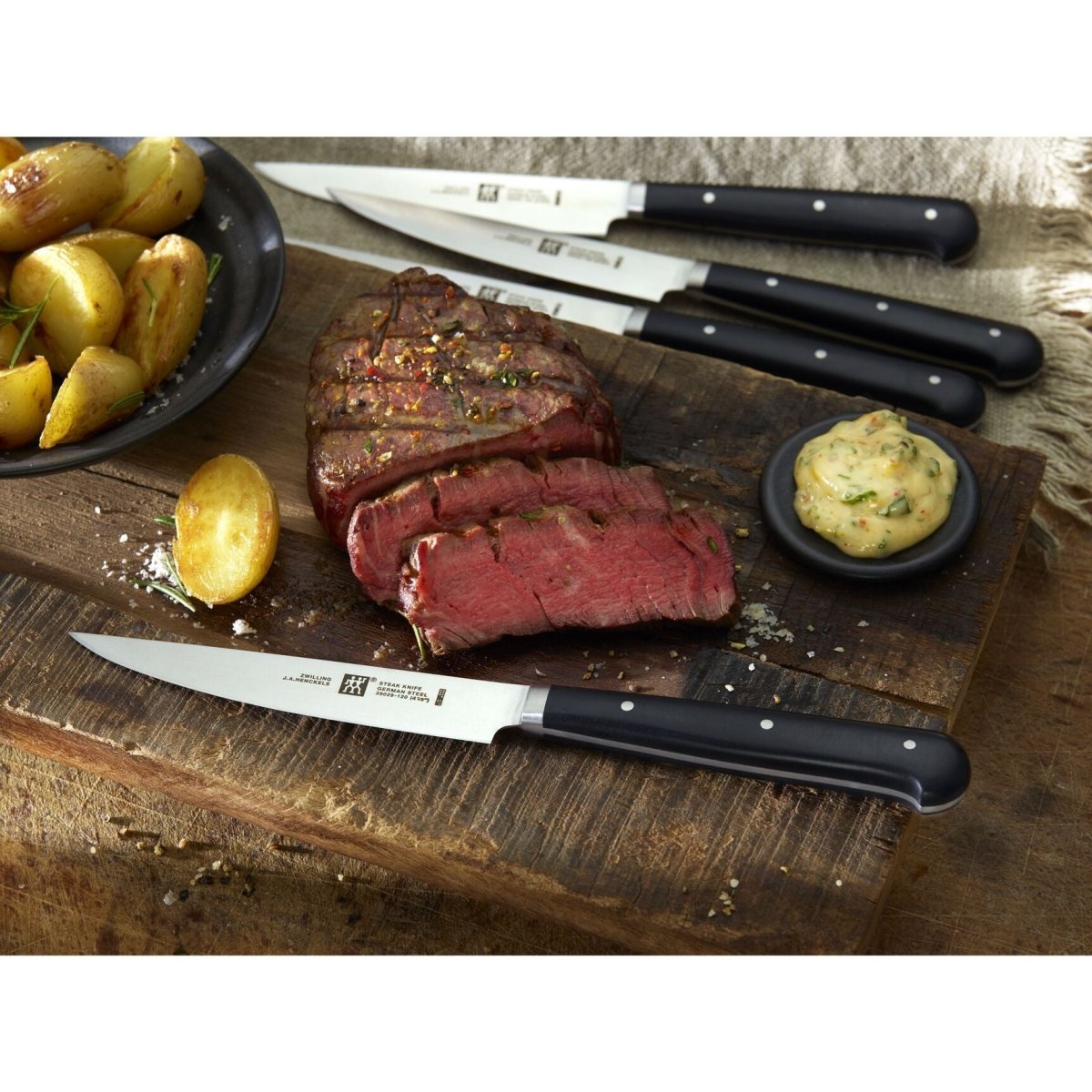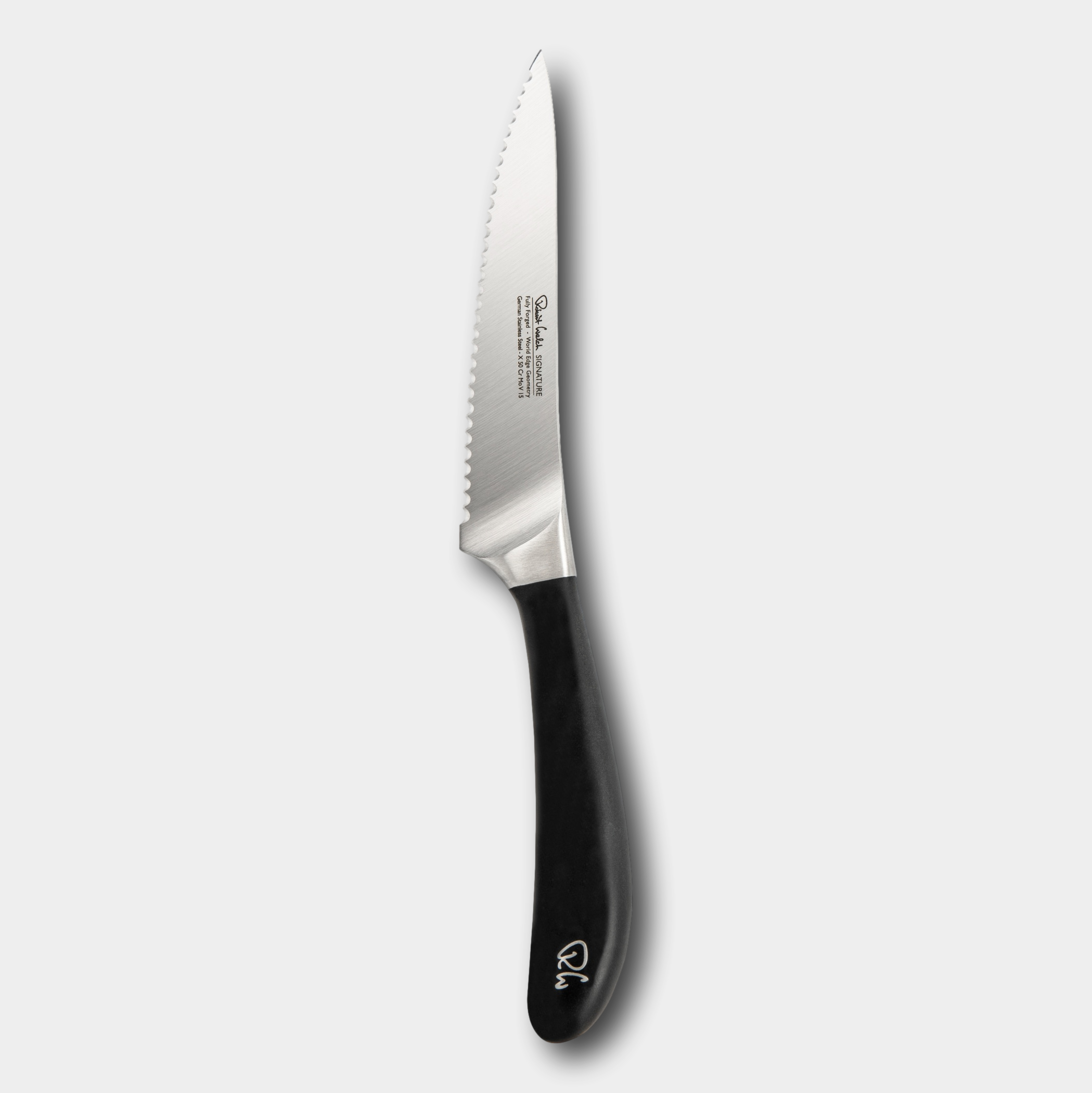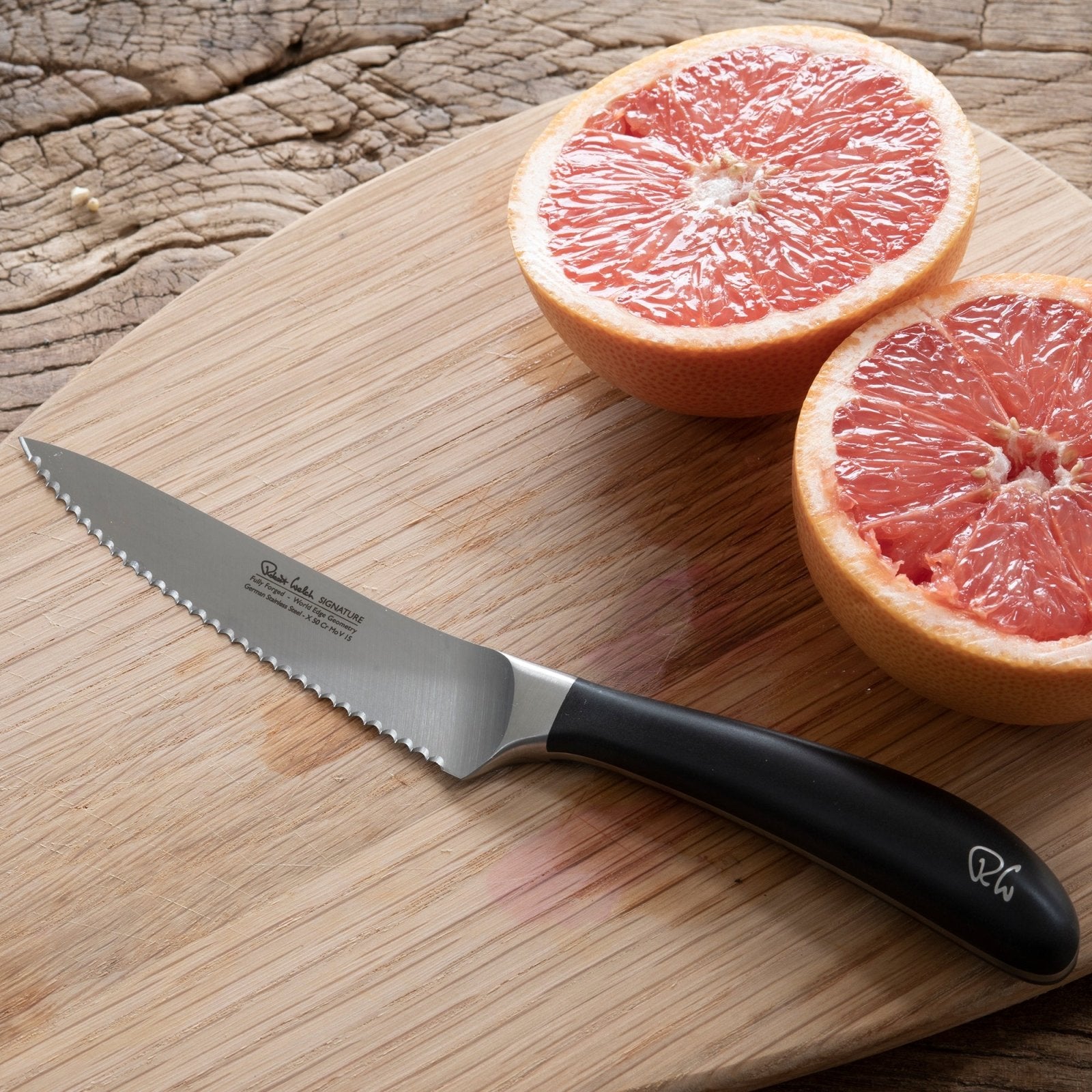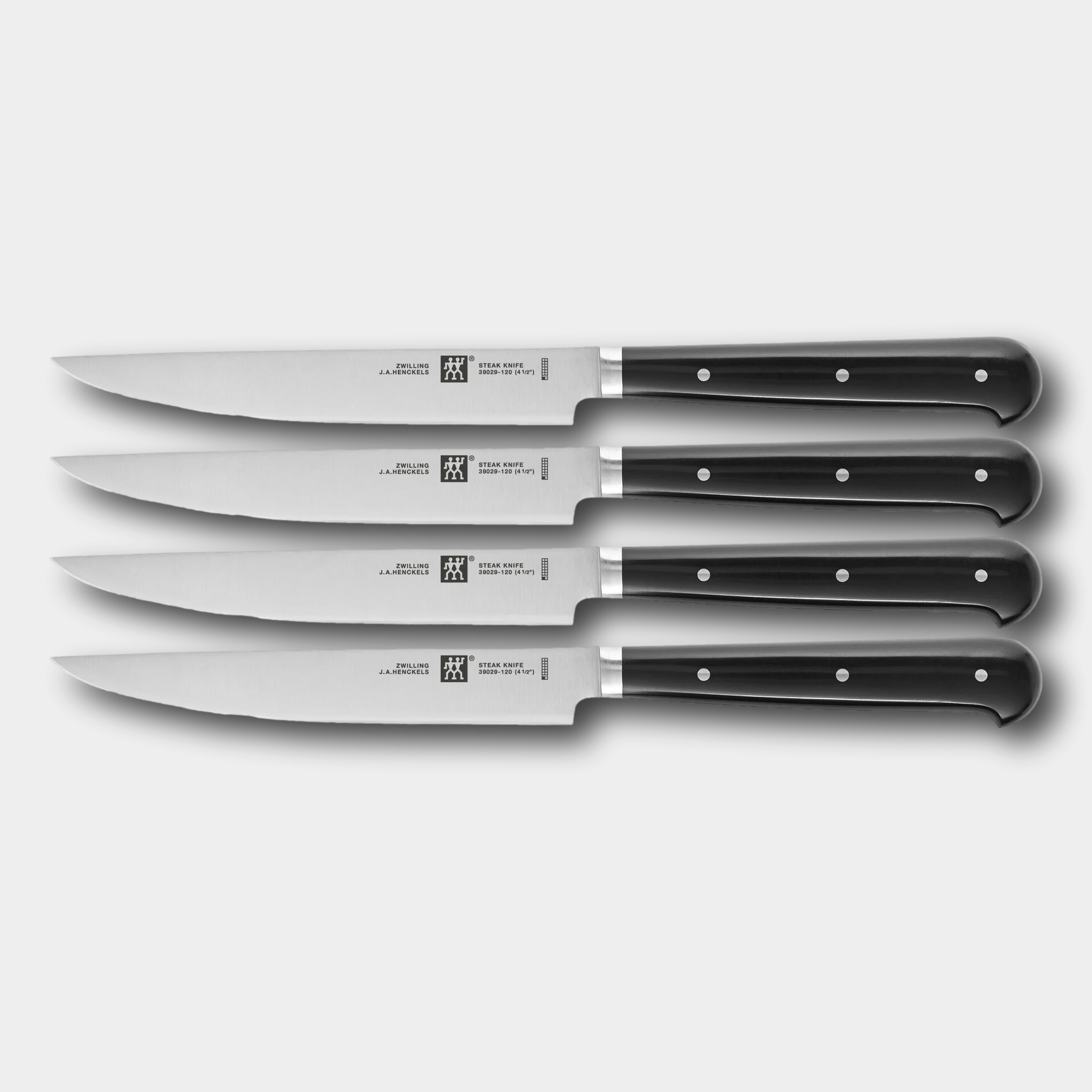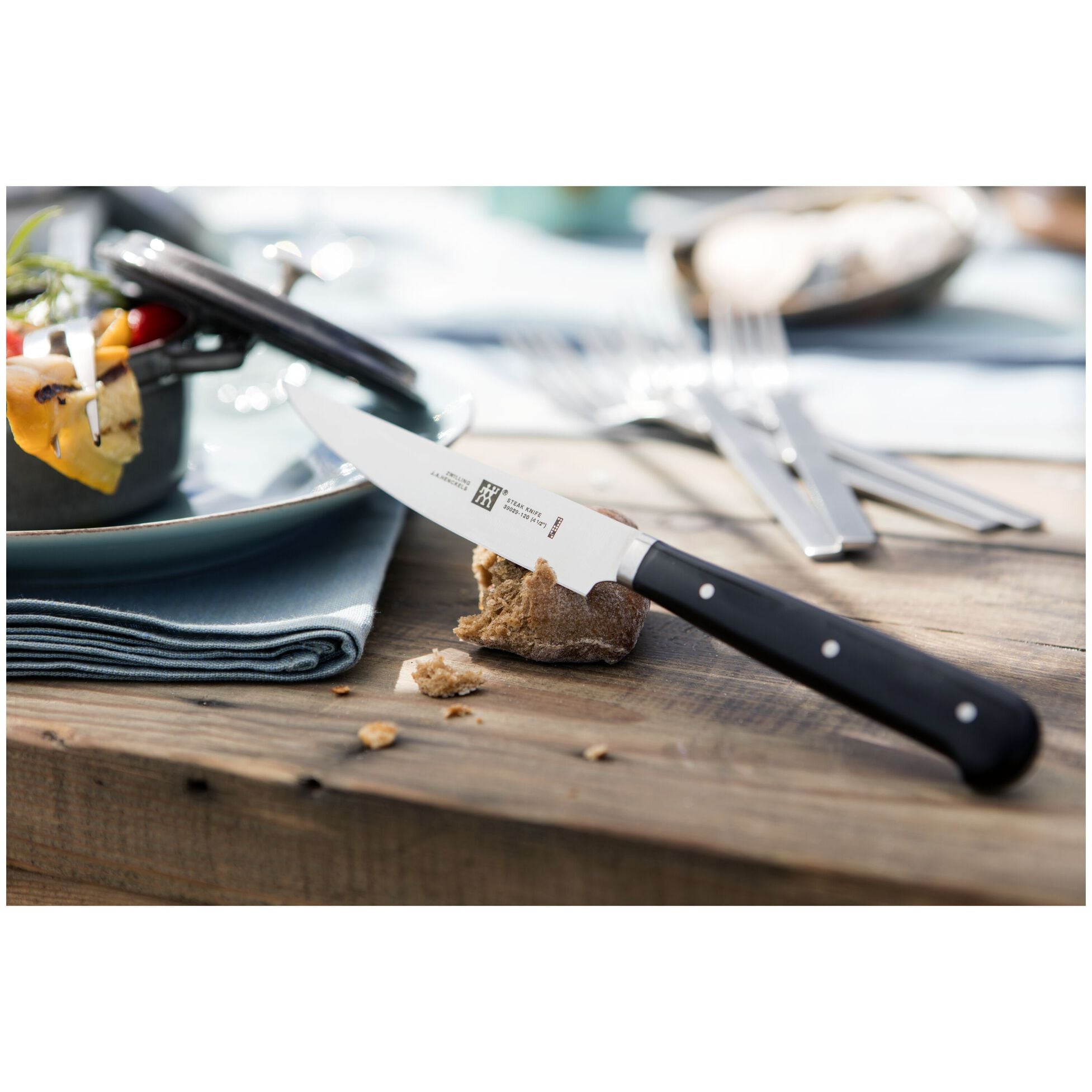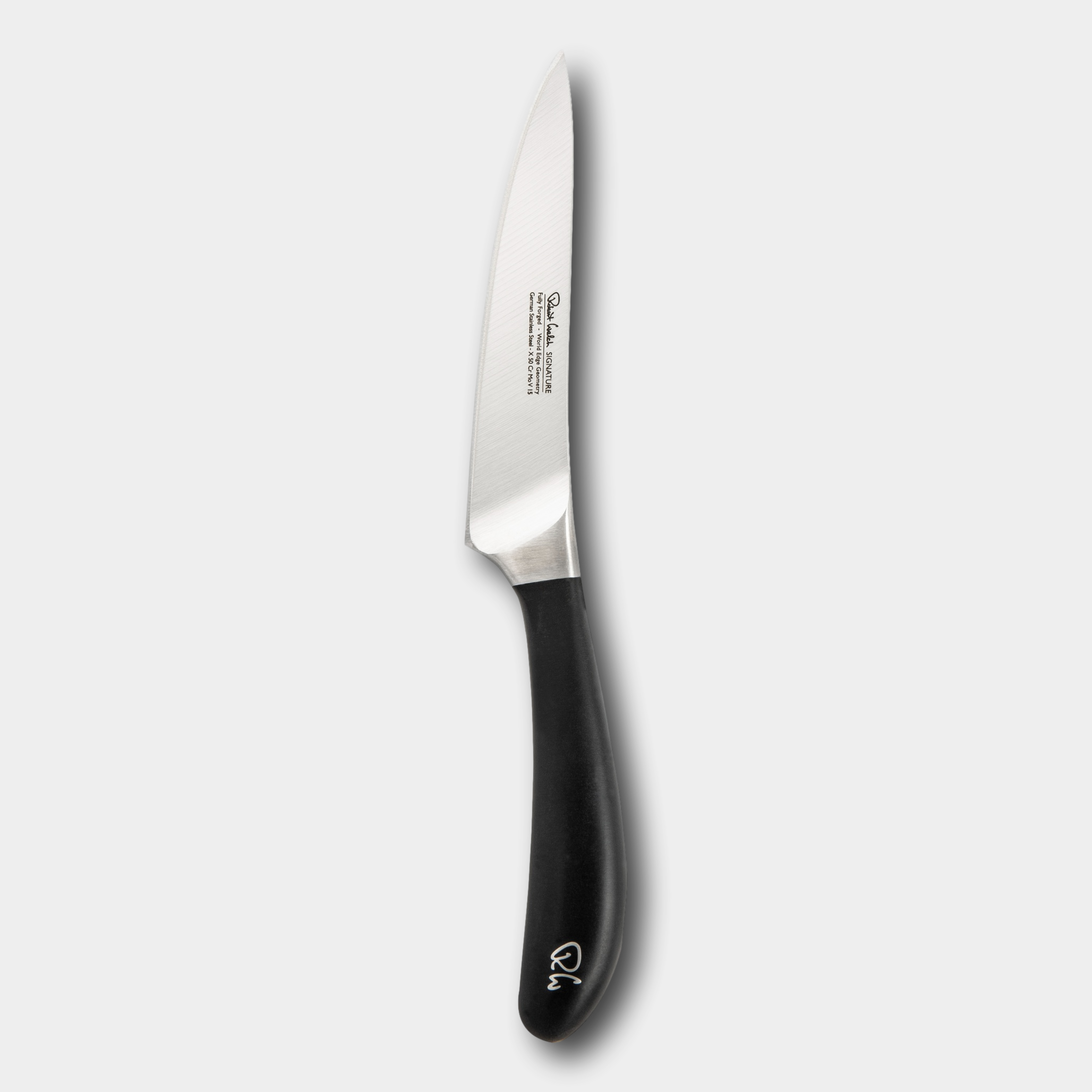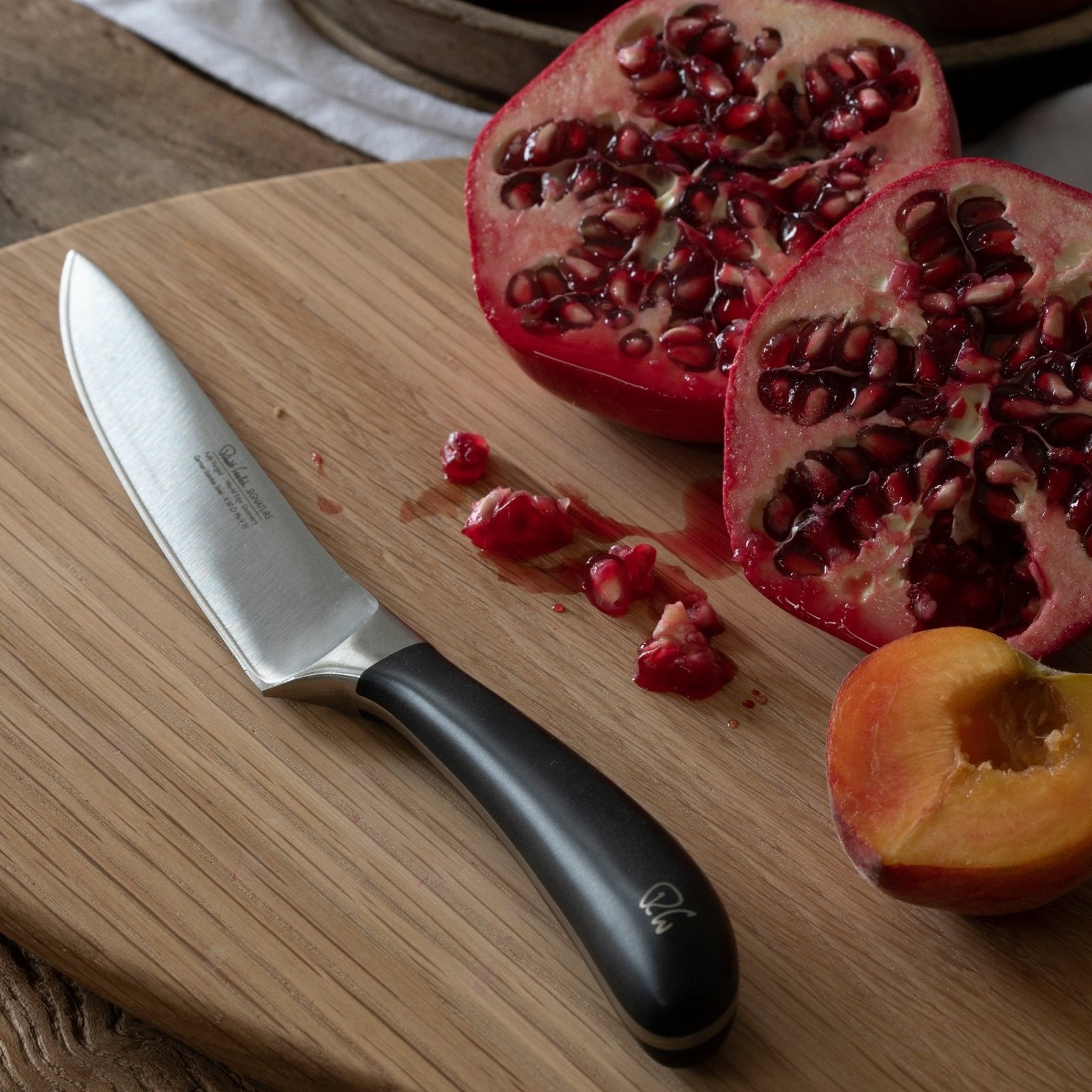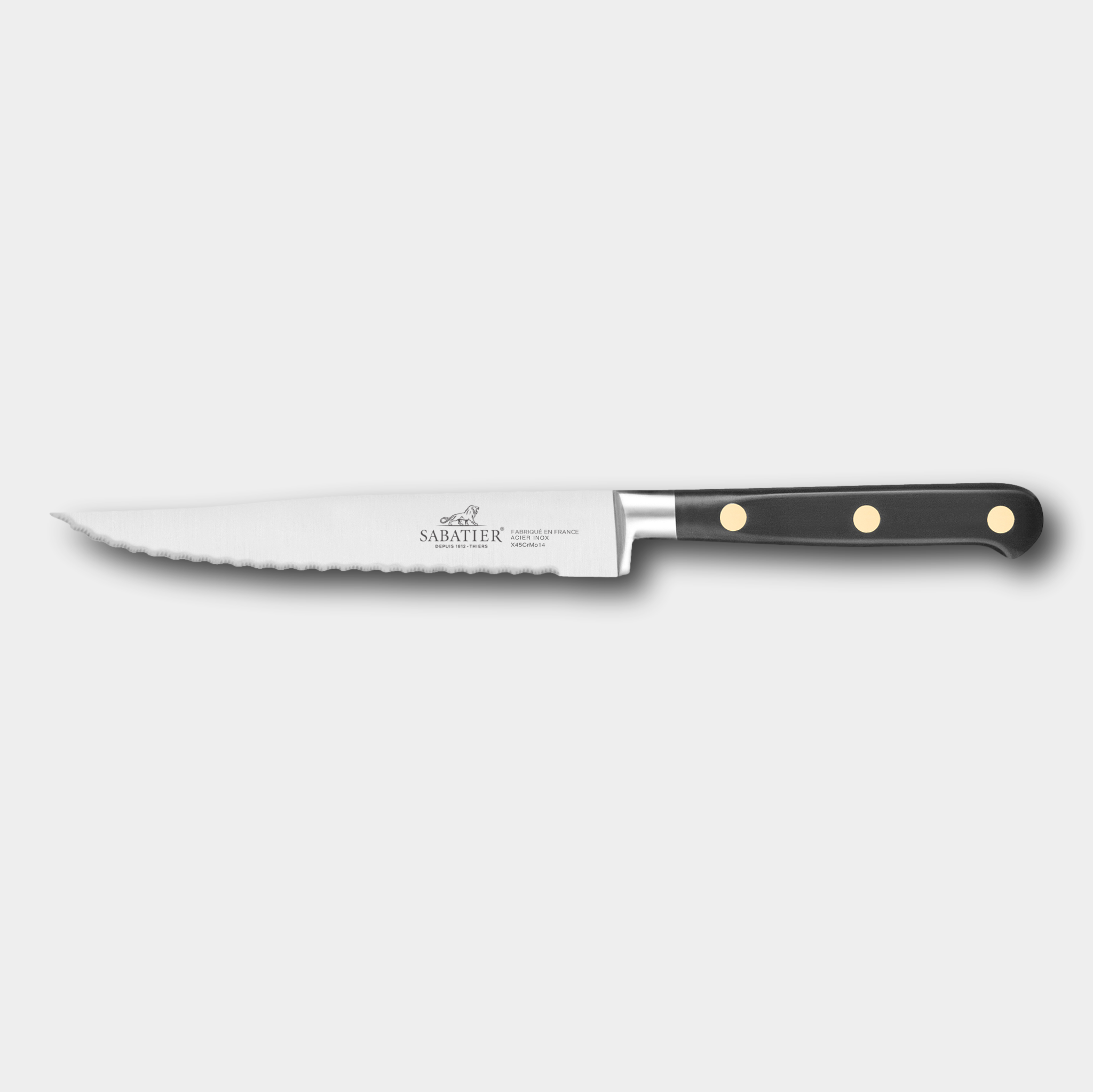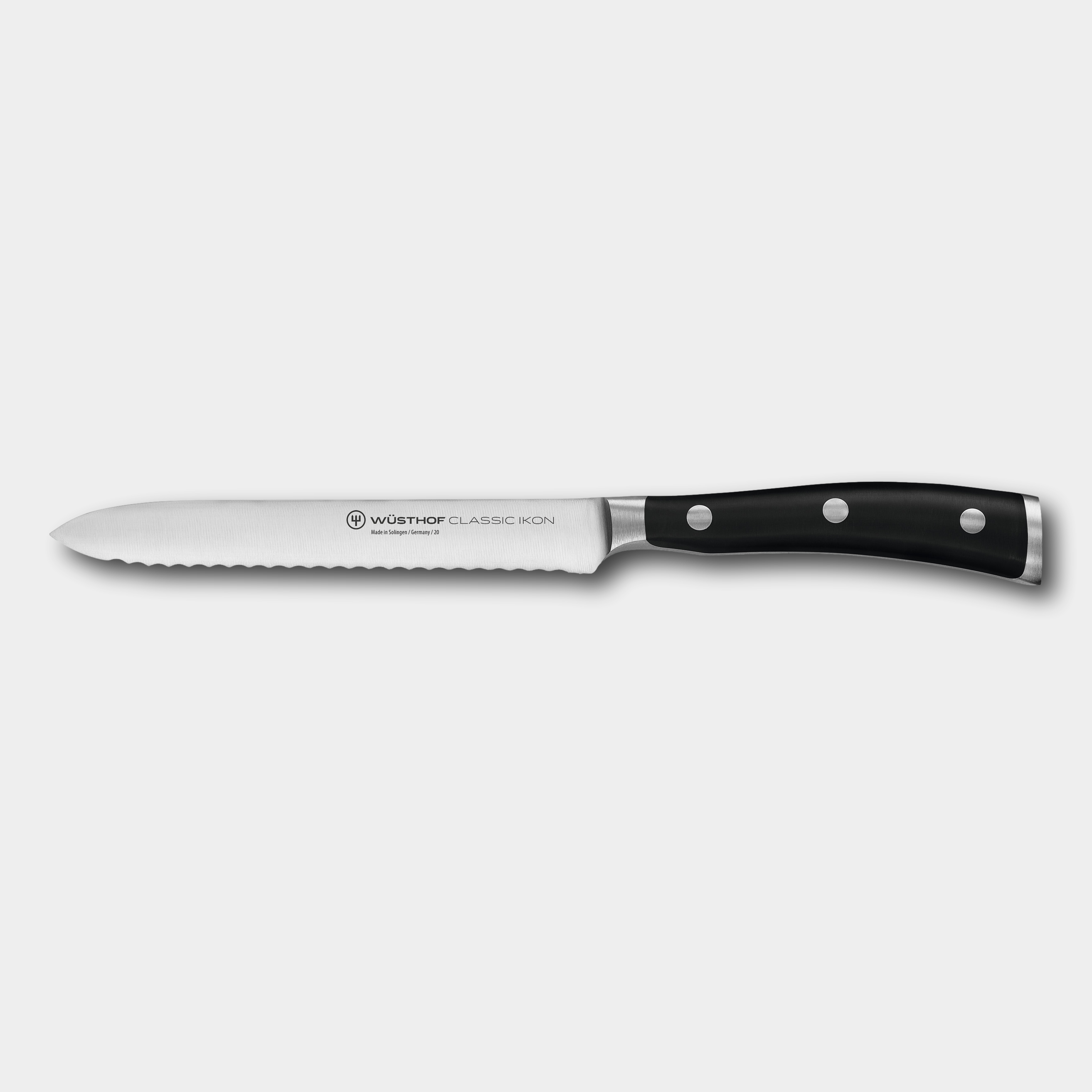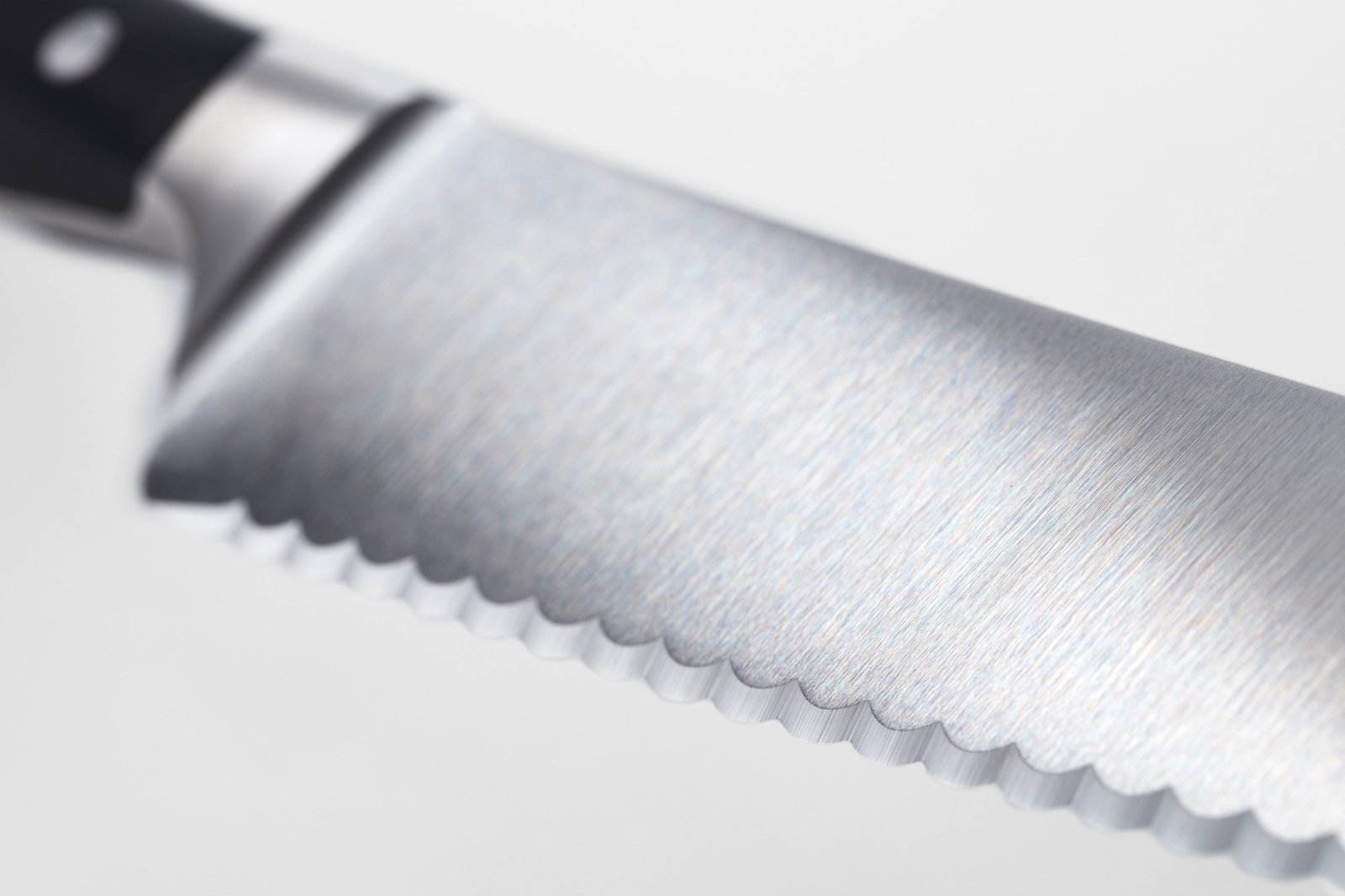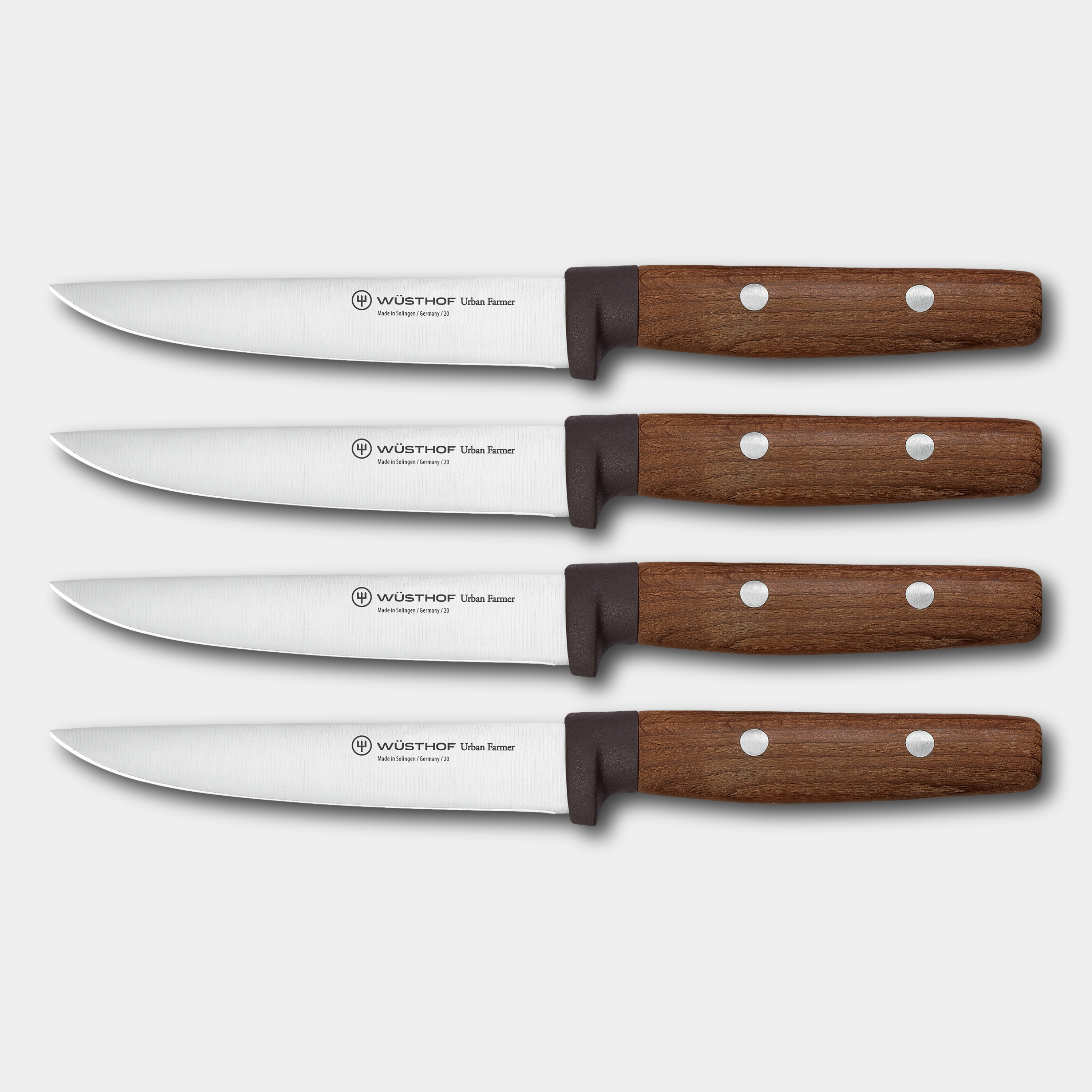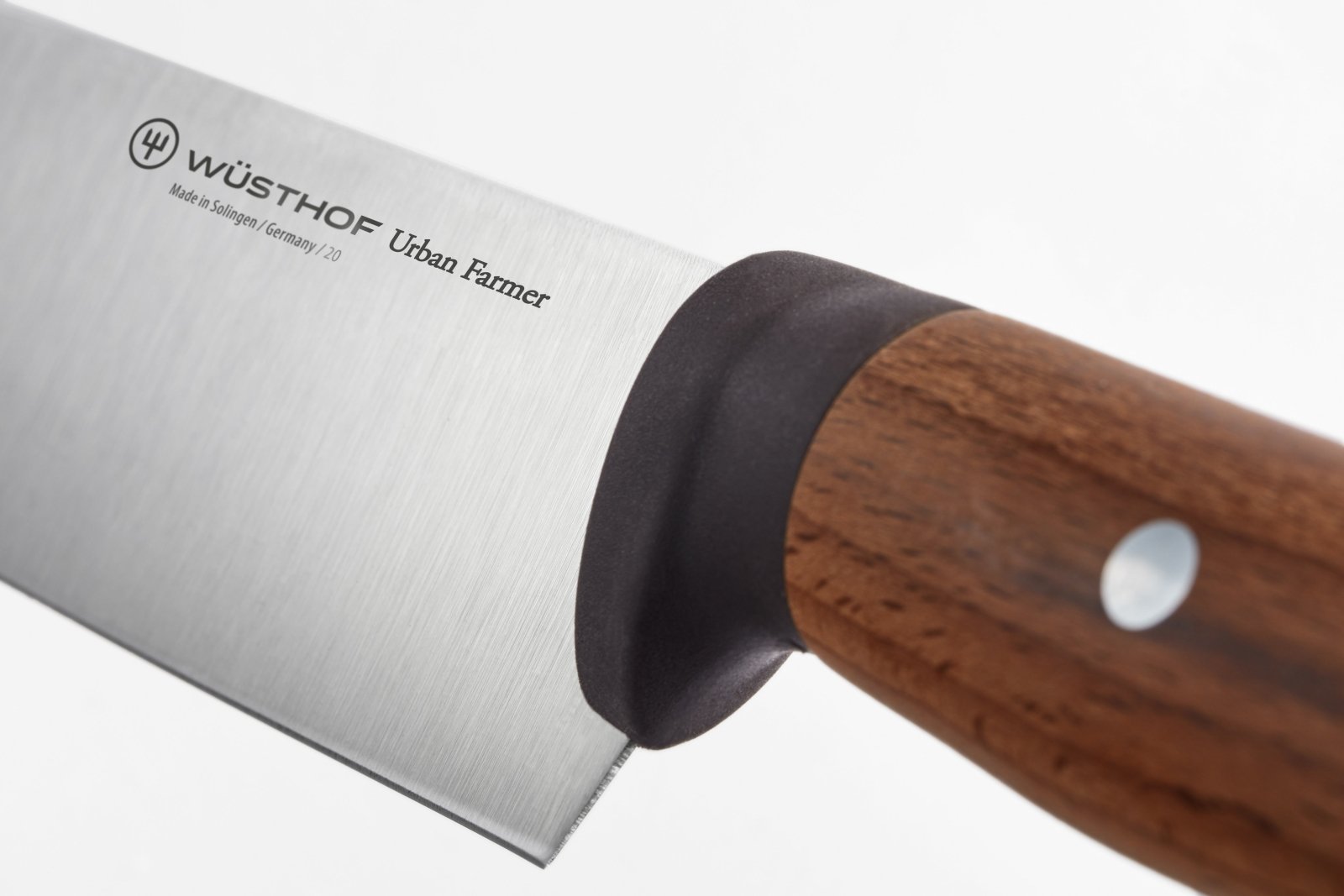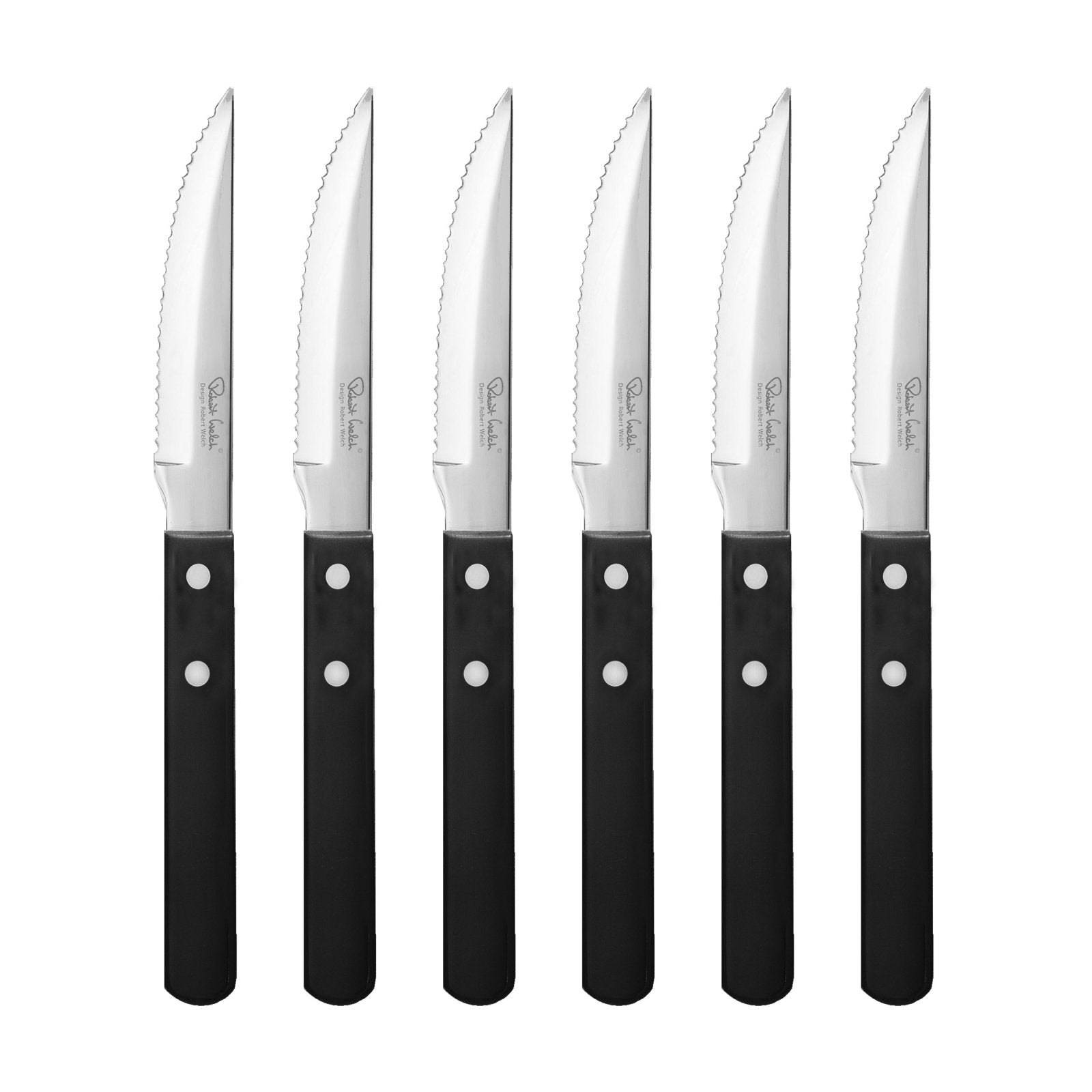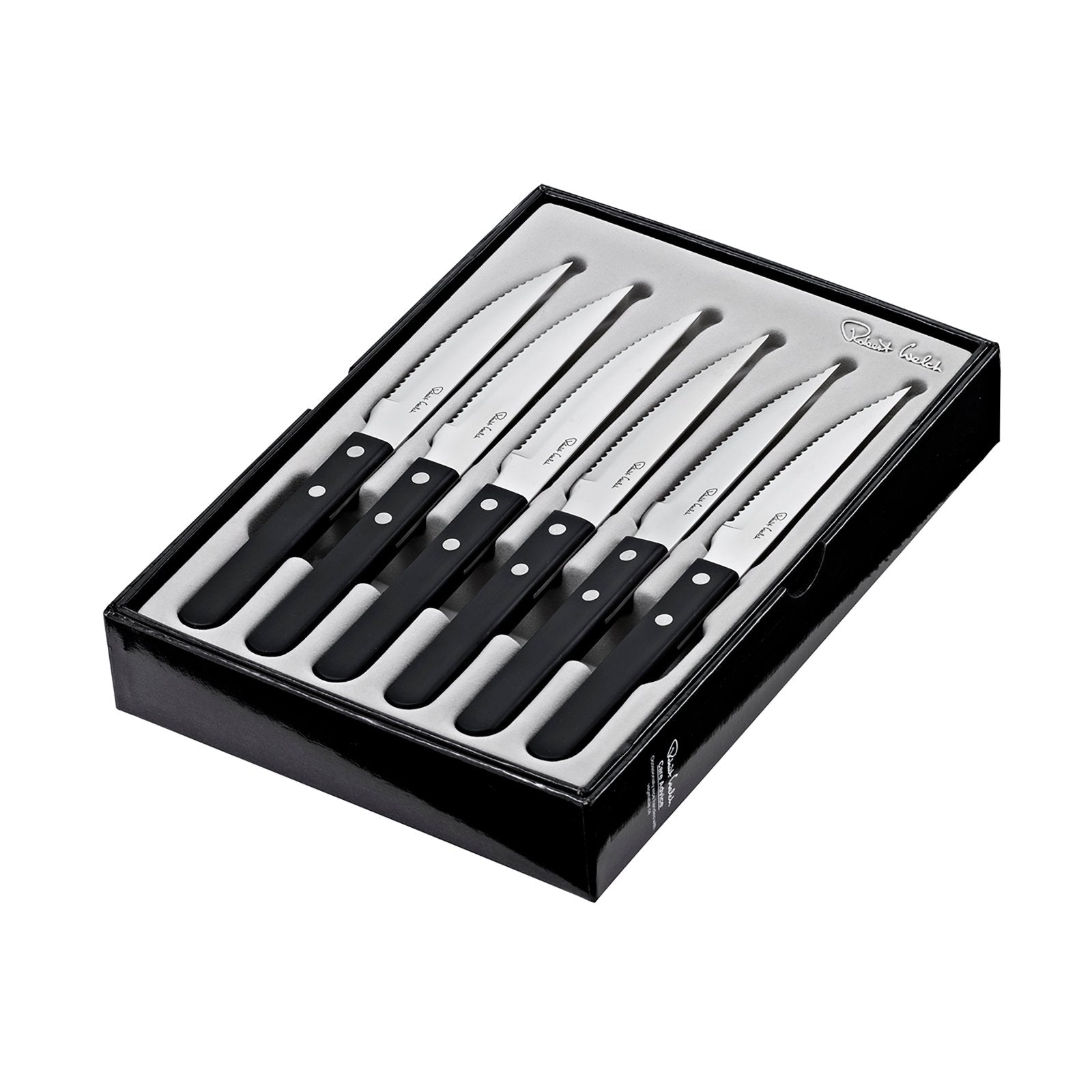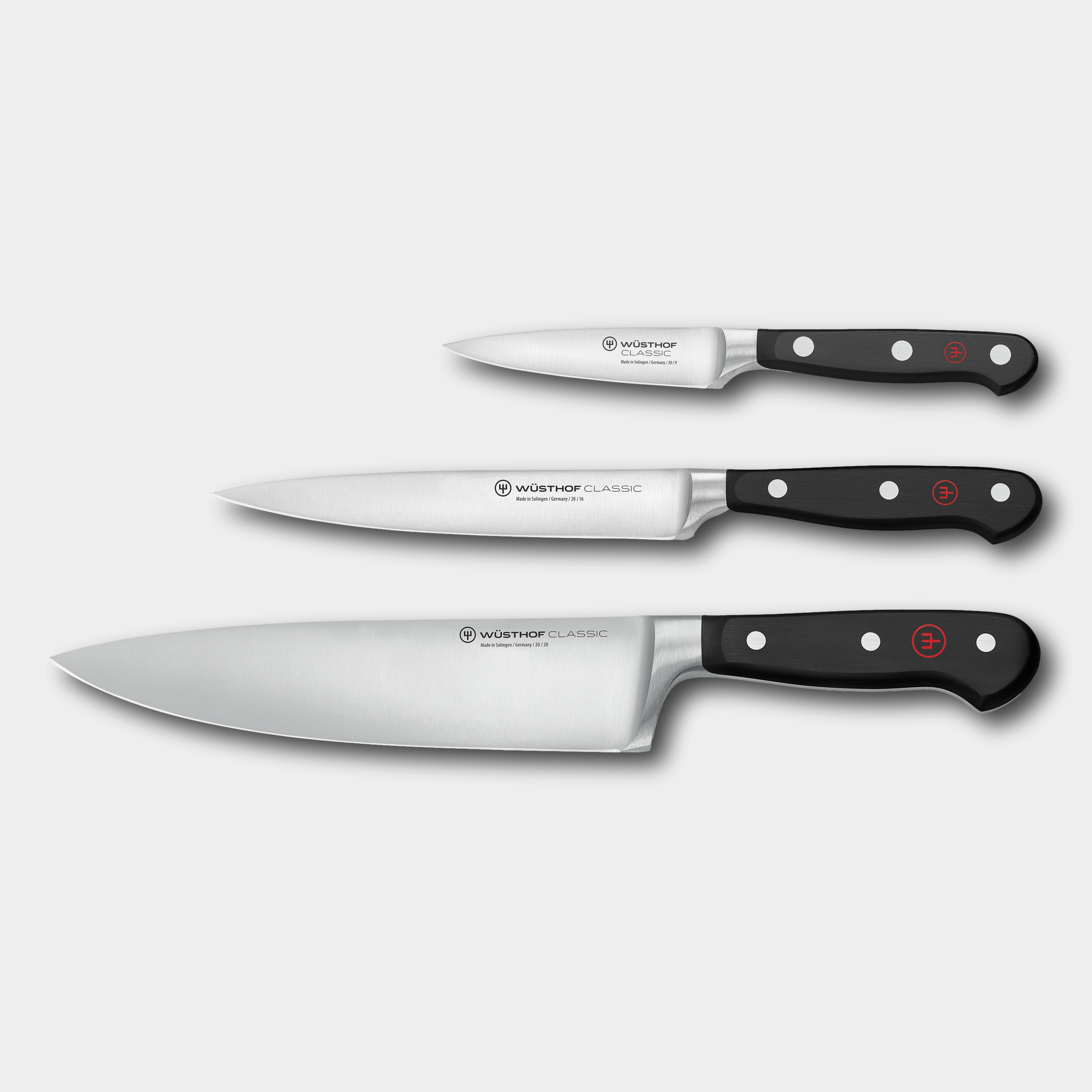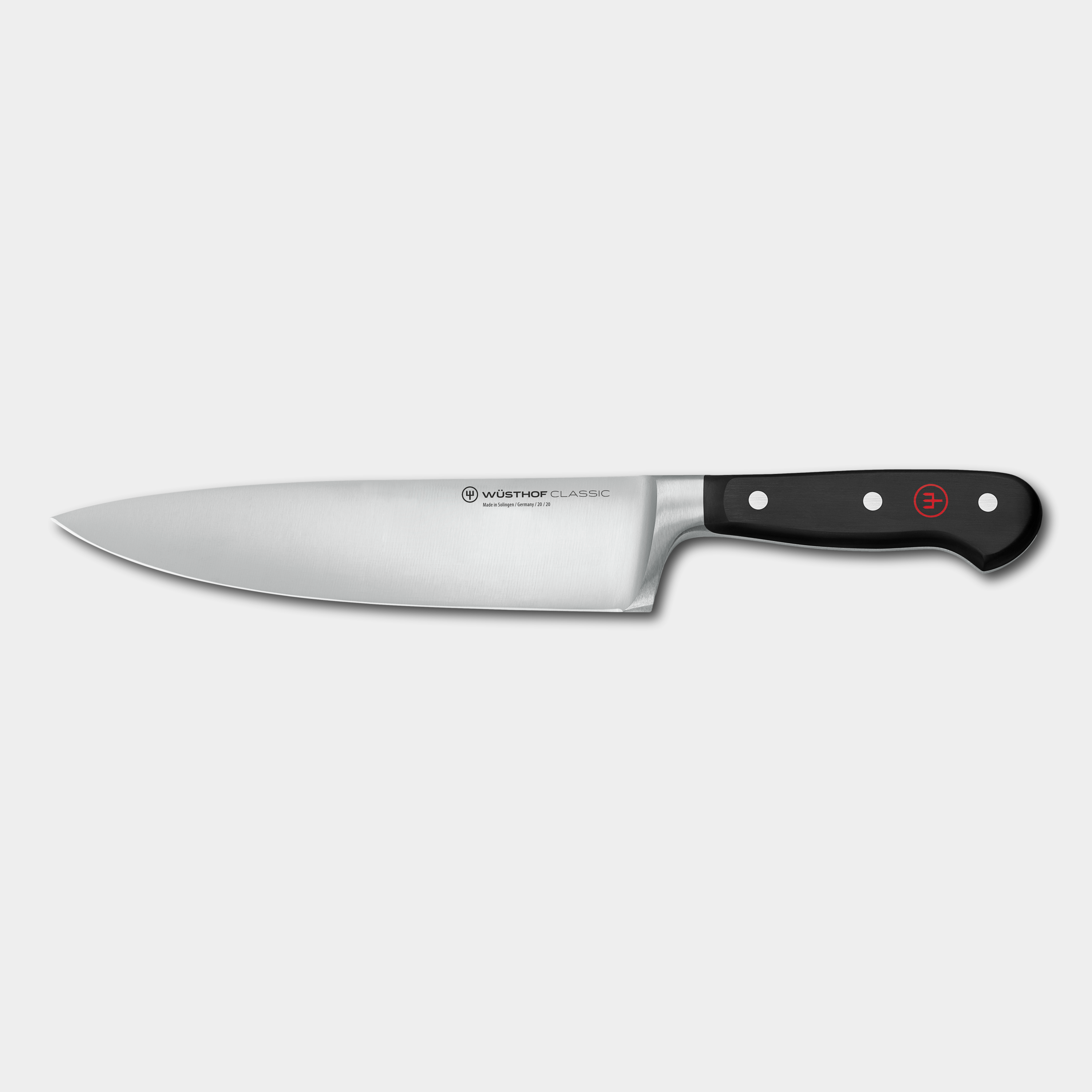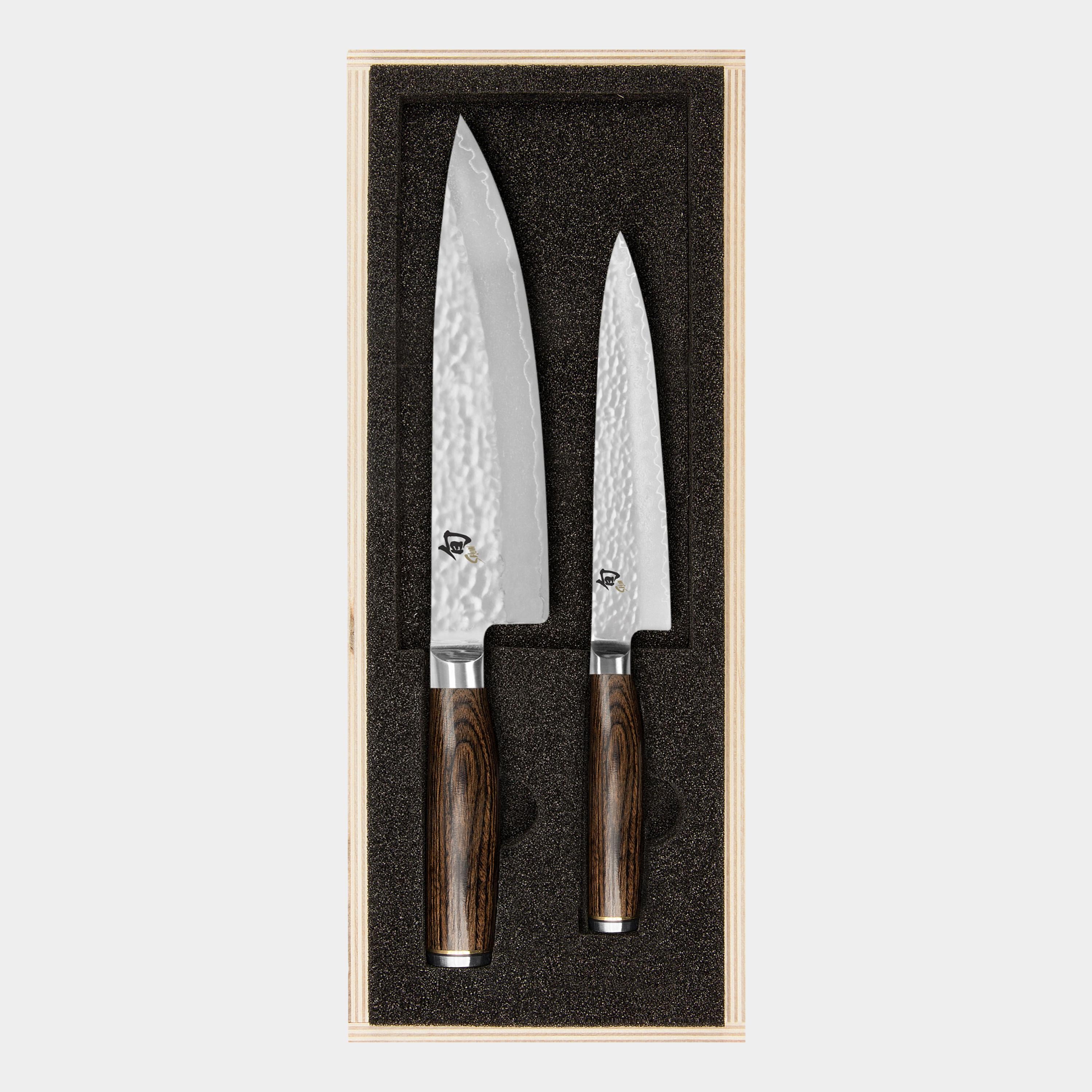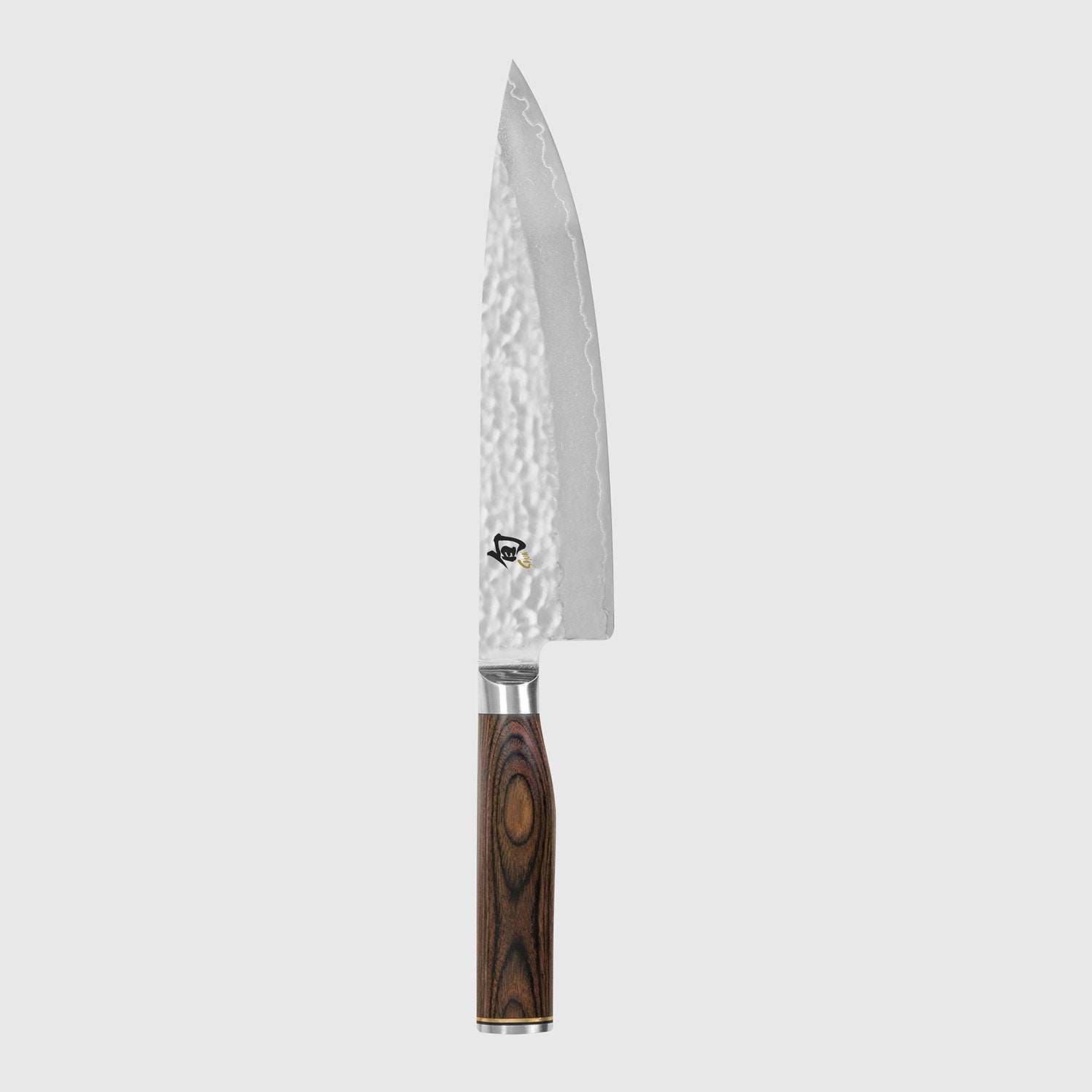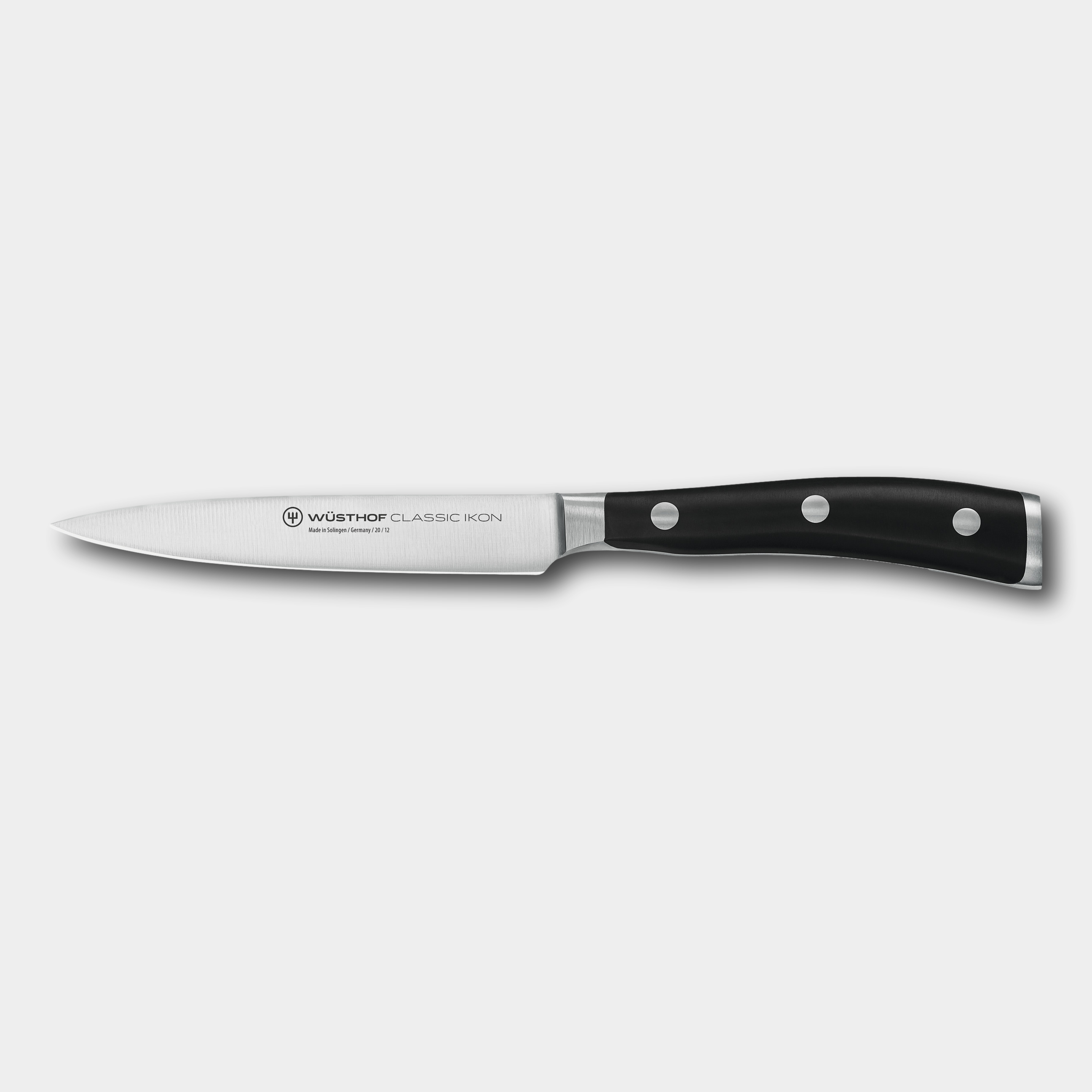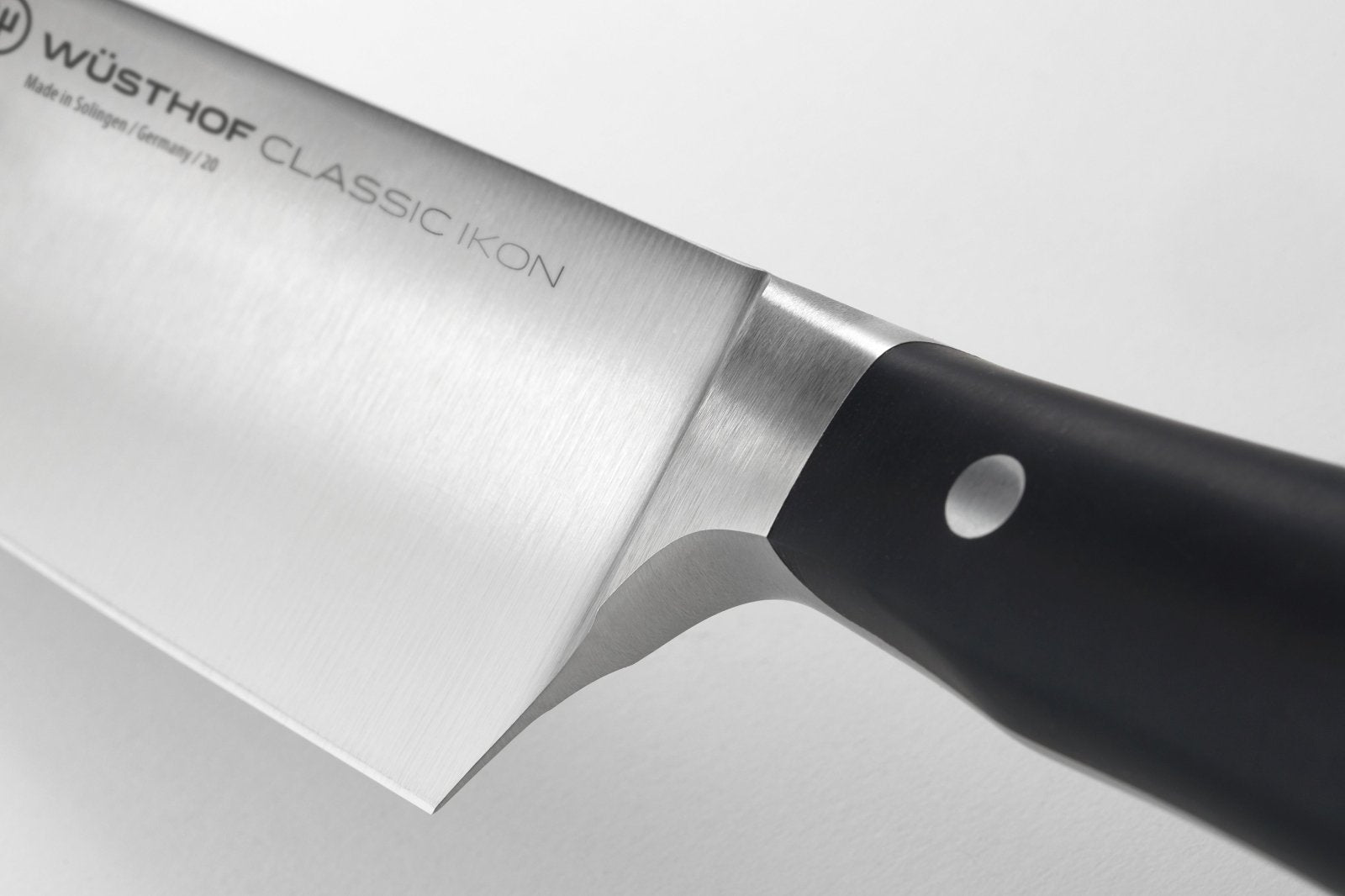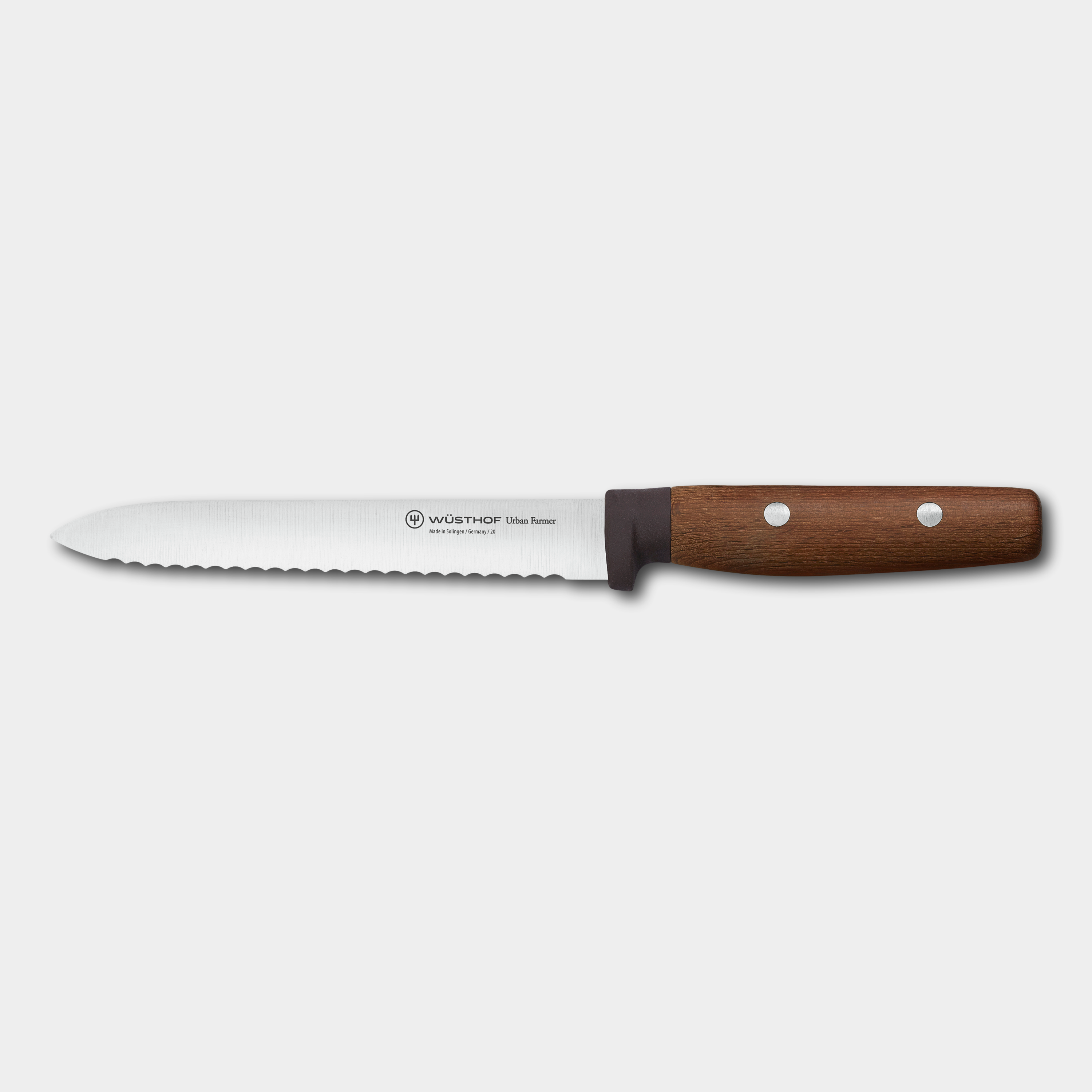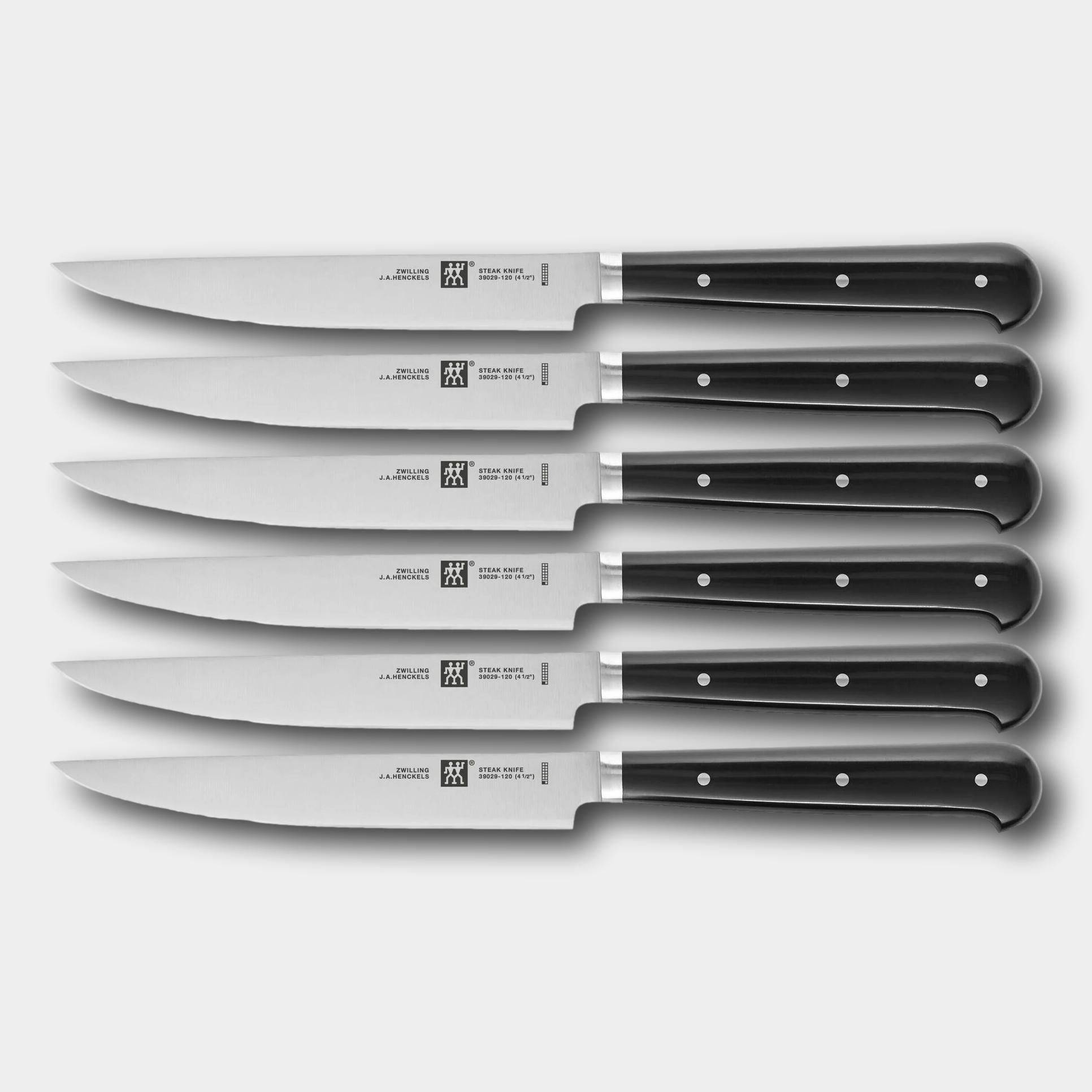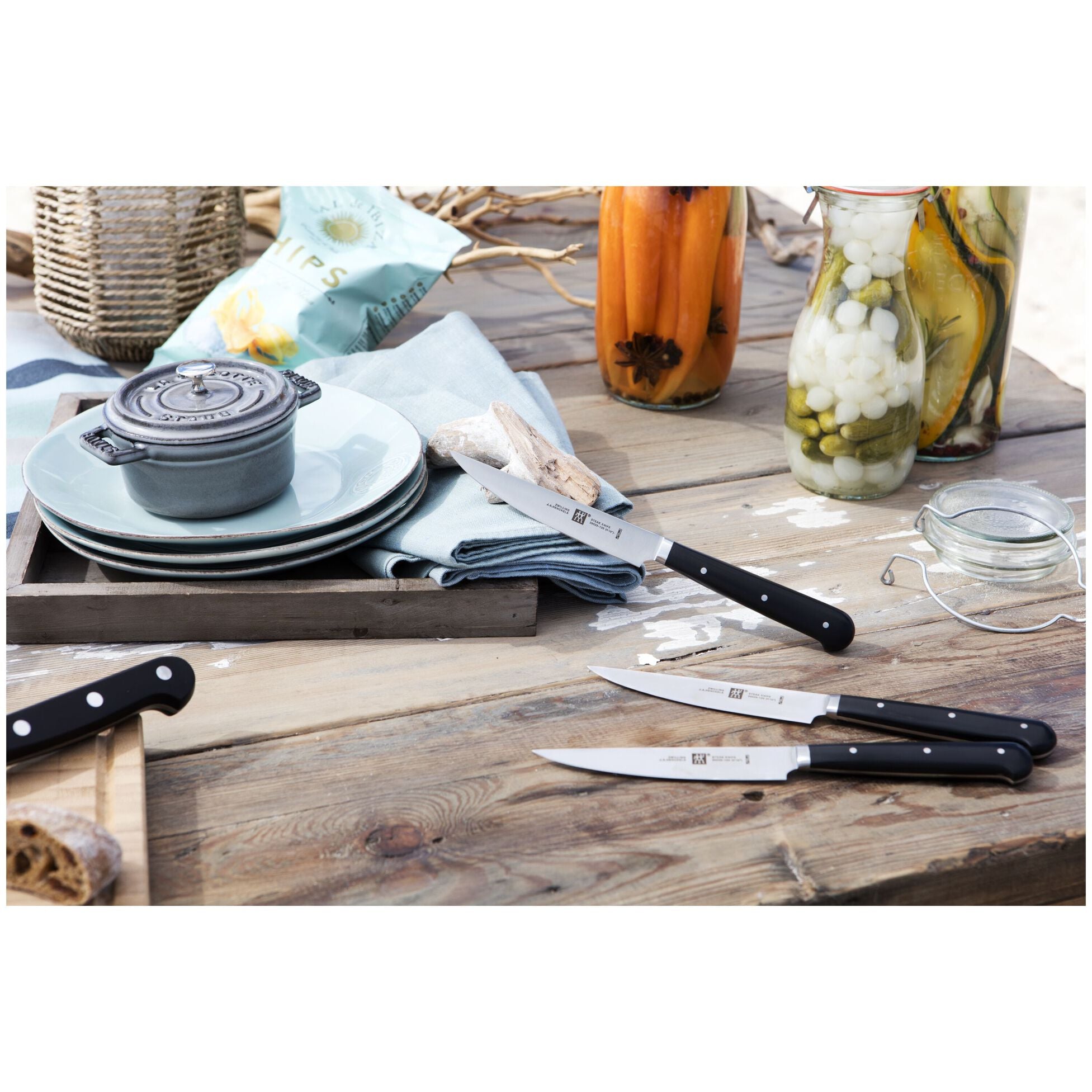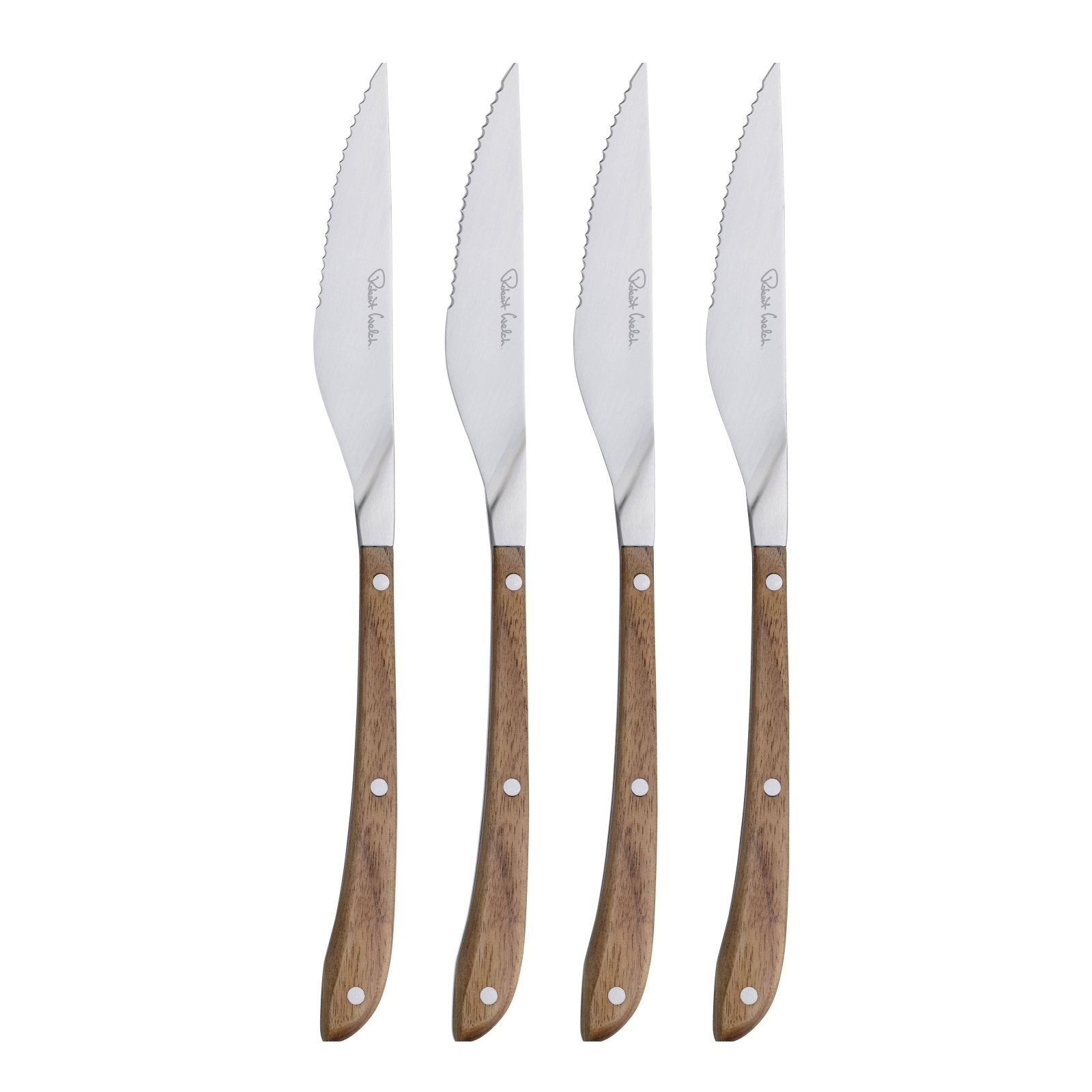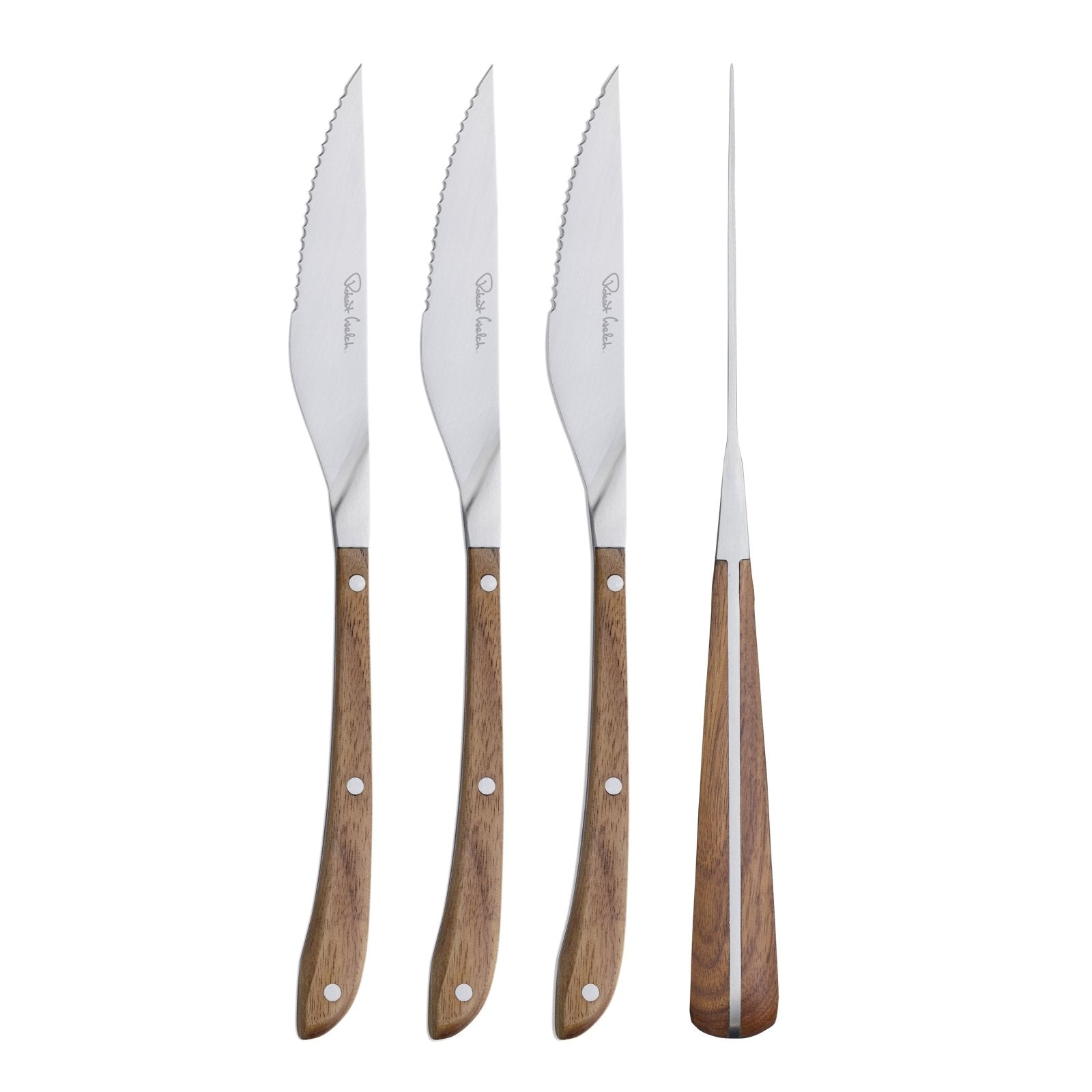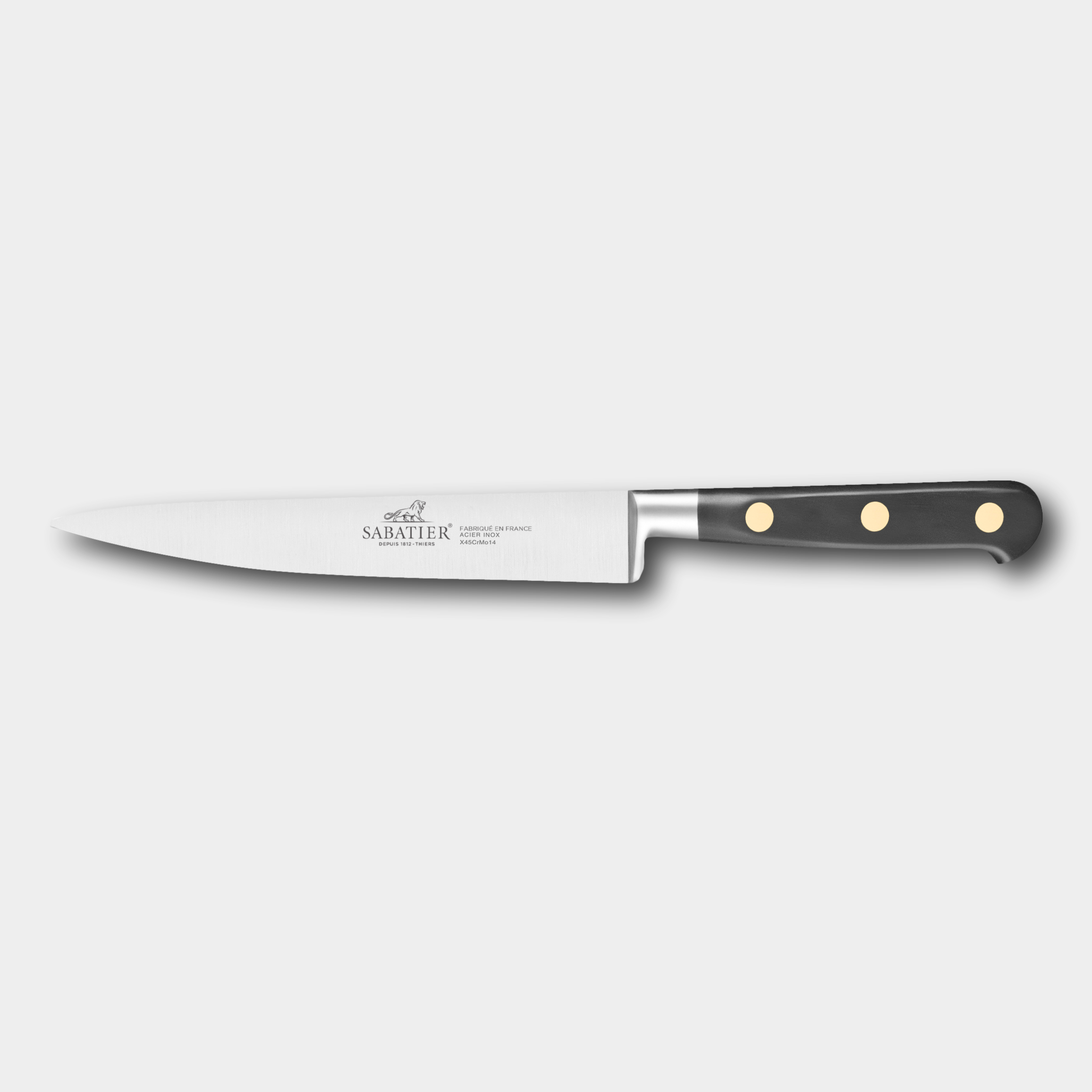
Utility Knives
THE VERSATILE KITCHEN KNIFE
Browse our collection of utility knives from some of the world's top brands, including Robert Welch, Wüsthof, Zwilling, Kai, and more. A utility knife is an essential kitchen tool known for its versatility and precision, making it perfect for a variety of everyday tasks. Whether you're slicing fruits and vegetables, trimming meats, or performing more detailed work like deveining shrimp or peeling delicate produce, a utility knife is designed to handle it all with ease and efficiency.
The compact size and narrow blade of a utility knife allow for more precise cuts and greater maneuverability, enabling you to tackle tasks that require more finesse than a chef's knife can provide. Investing in a premium utility knife means you'll have a dependable and versatile tool that enhances your culinary skills, helping you handle a wide range of kitchen tasks with confidence and ease.
- Renowned Brands:Featuring top names like Robert Welch, Wüsthof, Zwilling, Kai, and more.
- Express Delivery: If ordered before 2 pm we will dispatch it the same working day. Express delivery is available at the checkout.
- UK Support Talk to us, not a robot, we can advise and process your order over the phone
FAQs
A utility knife is a versatile kitchen tool designed for a wide range of cutting tasks that are considered too small for a chef's knife but too large for a paring knife. It's often considered the "in-between" knife, providing flexibility and precision for various culinary tasks. Here are the primary uses and characteristics of a utility knife:
- Slicing and Dicing Small to Medium-Sized Fruits and Vegetables
The utility knife is perfect for tasks that require more precision than a chef's knife but don't need the fine detail of a paring knife. It is ideal for slicing and dicing small to medium-sized fruits and vegetables, such as cucumbers, tomatoes, apples, and small squash. Its medium-sized blade offers more control and maneuverability, making it easy to perform detailed cuts. - Trimming and Slicing Meat
Utility knives are often used for trimming fat, cutting small cuts of meat, or slicing cooked meats like chicken breasts or pork tenderloin. They provide a clean cut and are more maneuverable than larger knives, making them ideal for tasks that require a bit more delicacy and precision. - Cutting Cheese
For cutting blocks of cheese or slicing softer cheeses like Brie or Camembert, a utility knife works well. - Slicing Breads and Pastries
For smaller loaves of bread or pastries, a serrated utility knife is a great option. It can handle the crust of bread without tearing through the softer interior and is also suitable for cutting through delicate pastries and cakes.
All in all, the utility knife is often a go to every day knife that can be used in a multitude of culinary tasks.
In an ideal world, having both a paring knife and a utility knife ensures you’re prepared for all kinds of kitchen tasks. Each knife excels in different areas, and their combined versatility will streamline your prep work.
Utility Knife Benefits
A utility knife typically features a blade length of around 4 to 7 inches. Its slightly longer blade can handle a broad range of everyday tasks, like slicing small-to-medium produce or trimming meat when you don’t need the size of a chef’s knife. Because it fills that “in-between” role, a utility knife is often the go-to blade for cooks who want one knife that can do a bit of everything.
Paring Knife Benefits
Paring knives generally range from about 2.5 to 4 inches in blade length. This shorter, maneuverable blade is perfect for delicate tasks that require precision and control—such as peeling fruit, coring strawberries, removing seeds from peppers, or making small incisions for garnishes. If you tend to do detailed prep work, a paring knife really shines.
Which One to Choose
If intricate peeling, coring, or trimming are frequent tasks in your kitchen, opt for a paring knife. If you often want a single, versatile blade for most small-to-medium cutting jobs, a utility knife could be the better choice. Ultimately, owning both covers the widest range of kitchen tasks with ease.
Maintaining your knives involves several essential practices to ensure they stay sharp, durable, and in top condition:
- Cleaning: Always wash your knives by hand with warm water and mild detergent immediately after use. It's important to avoid using the dishwasher, as the harsh environment can damage both the blade and the handle over time. After washing, dry the knives completely with a soft cloth to prevent any rust formation.
- Honing: Regular honing is key to keeping your knives sharp and maintaining their edge. Use a honing steel before or after each use to realign the blade's edge. Hold the steel vertically and gently slide the knife down and across the steel at a 20-degree angle.
- Sharpening: In addition to regular honing, your knives will need periodic sharpening, typically once or twice a year depending on how frequently you use them. You can sharpen your knives using a whetstone, a handheld sharpener, or opt for professional sharpening services.
- Storage: Proper storage is crucial for the longevity of your knives. Store your knives in a knife block, on a magnetic strip, or within protective sheaths. This not only prevents the blades from dulling but also helps avoid accidents. Storing knives in a drawer is not recommended, as they can easily get damaged.
- Cutting Surface: To maintain the sharpness of your knife edges, always use wooden or plastic cutting boards. Cutting on hard surfaces like glass, metal, or stone can quickly dull your knives.
- Avoid Misuse: Remember that these knives are specifically designed for cutting food. Avoid using them for any non-food related tasks, as this can damage the blade.
- Handle with Care: Always be mindful of the knife's balance and handle it with care. Avoid dropping or carelessly tossing your knives, as this can lead to damage to both the blade and the handle.
Shop at Cotswold Knife Company with confidence, knowing we are a verified stockist of all the knives we stock.
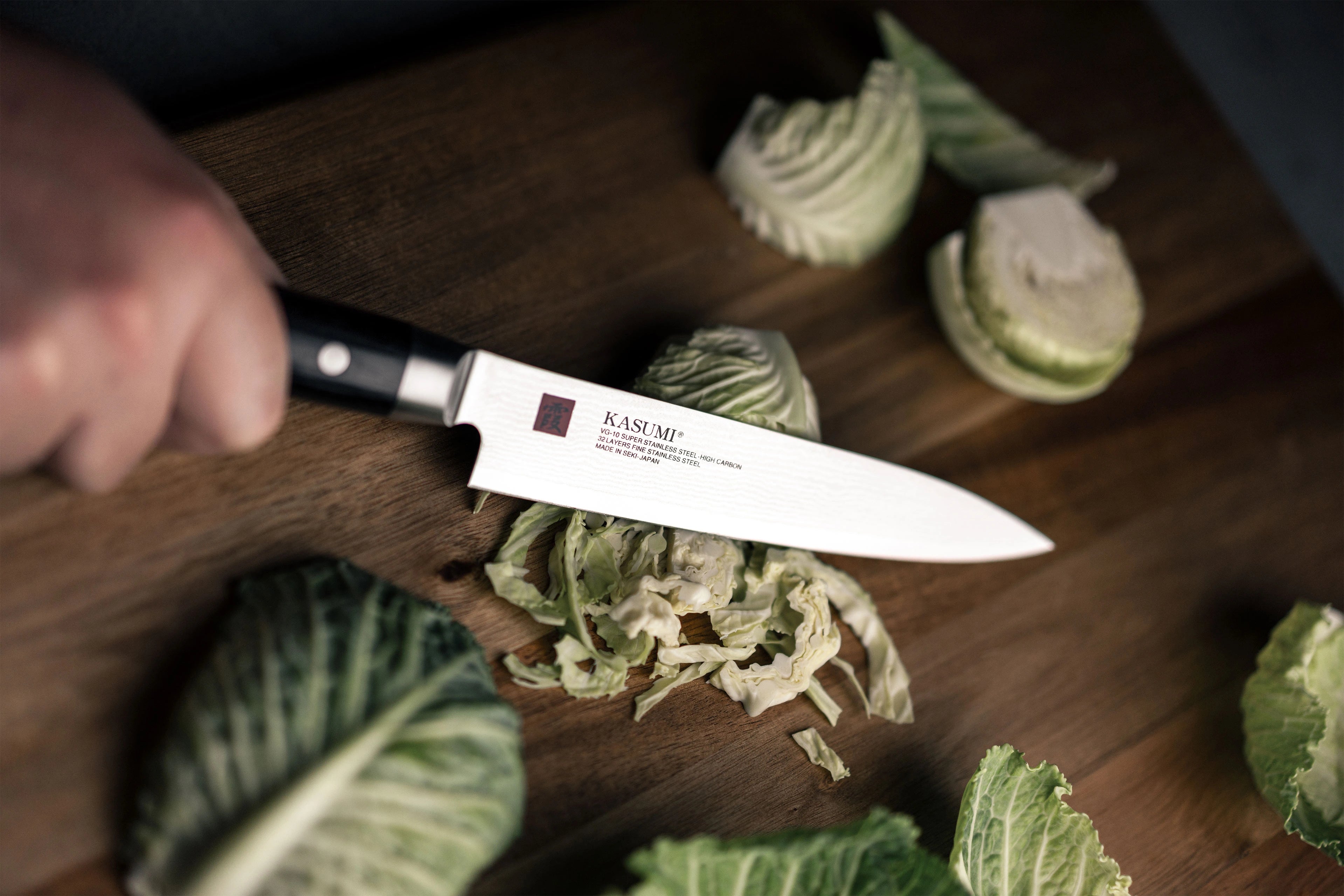
Our Full Guide to the Kitchen Utility Knife
The Cotswold Knife Co
Whether you’re curious about adding a utility knife to your kitchen toolkit or figuring out how to get the most out of the one you already own, this guide has you covered. Discover what makes a utility knife unique, learn how it stacks up against other blade types, and pick up practical tips for slicing, trimming, and tackling those in-between tasks with ease.
